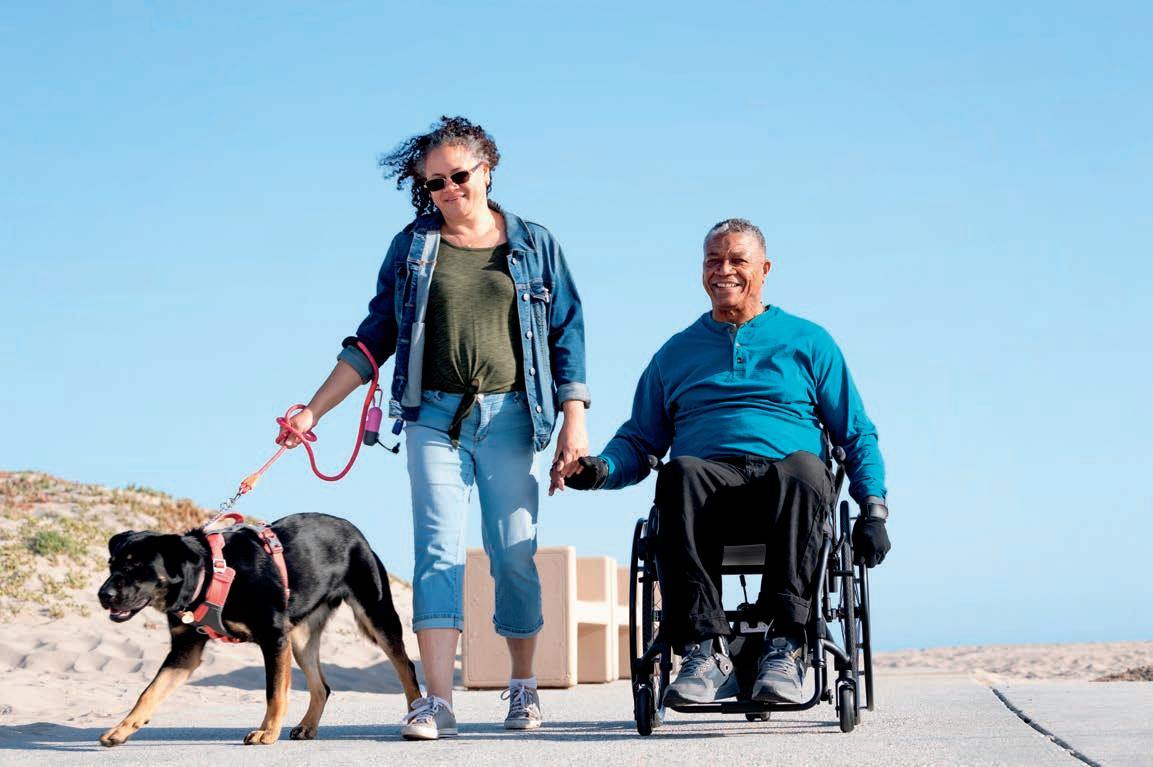Innovative Solutions
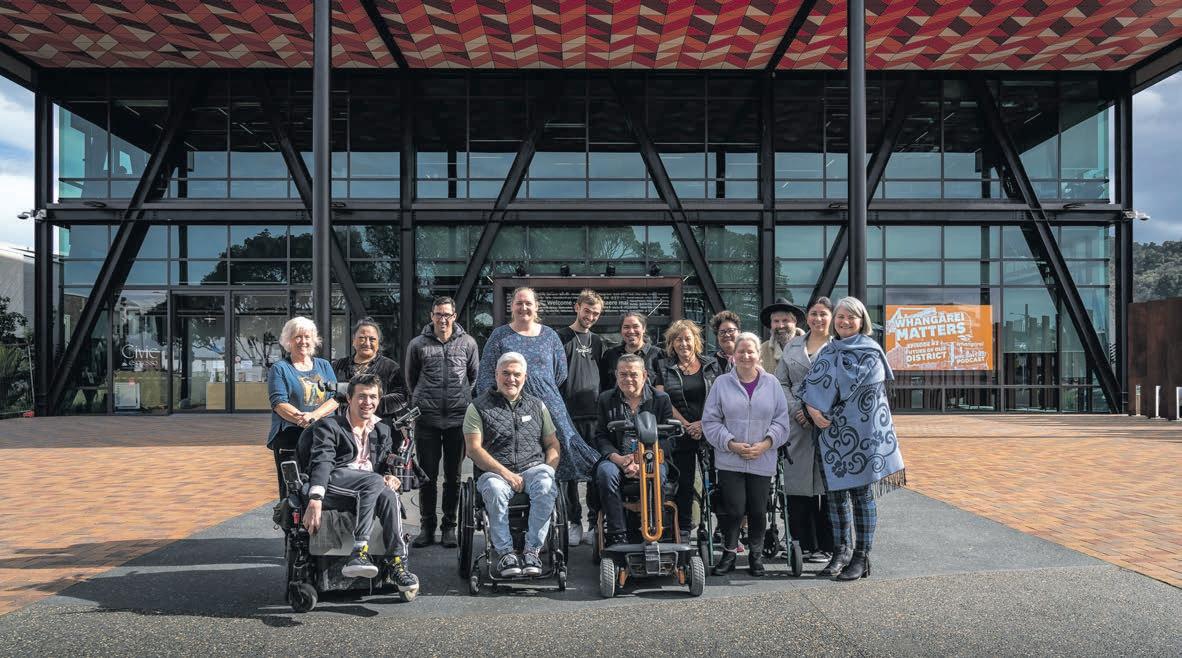
































































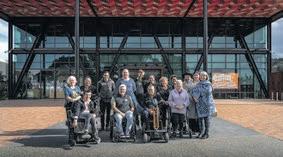







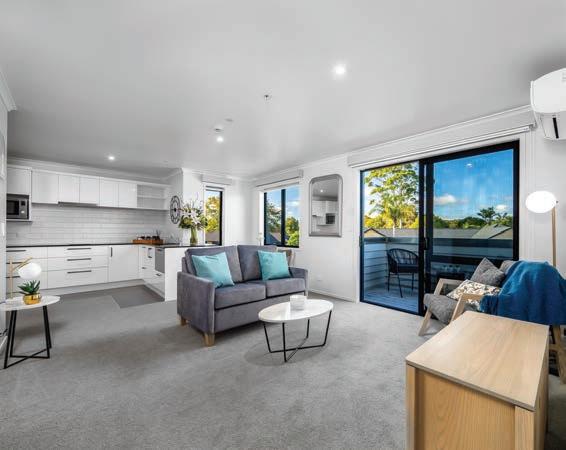



Linking people, families and carers living with a disability to information, advice and support in their community.
Visit www.tiaho.org.nz/support nd out more about what services these organisations provide in Northland.
In Northland, there are a range of organisations providing a Disability Information Advisory Service. These are known as the ‘Northland DIAS Collective’. Tiaho Trust supports these organisations by helping to improve the access to and utilization of their information and services in Northland for you and your families/whanau. Tiaho Trust is your rst point of call if you are unsure who to contact or have any questions, call us on: FREEPHONE: 0800 430 3406.
The DIAS Collective provides various services about a speci c disability, or disability in general, such as:
• Advice and information
• Advocacy
• Community education and awareness
• Support groups and networking
• Home visits
• Access to health professionals
• Referrals and assessments
• Equipment
• Seminars/workshops
• Resources
Together, Tiaho Trust and the DIAS Collective, empower the Northland community by promoting the disabled community as valued citizens who contribute, participate and add to the diversity of New Zealand society.















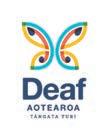

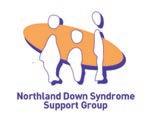
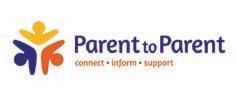
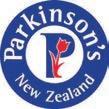
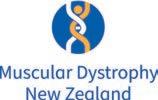
For DIAS contact details please refer overleaf

Your A - Z directory of disability support providers:
Alzheimers
www.tiaho.org.nz/alzheimers 112 Corks Road, PO Box 7027, Tikipunga, Whangarei 0144 0800 004 001
Whangarei (09) 438 7771 northland@alzheimers.org.nz www.alzheimersnorthland.org.nz
Arthritis New Zealand www.tiaho.org.nz/arthritis Unit B, 383 Khyber Pass Road, Newmarket, Auckland
Freephone: 0800 663 463 info@arthritis.org.nz www.arthritis.org.nz
Blind Low Vision NZ
www.tiaho.org.nz/blind_foundation
277 Kamo Road, Whangarei Phone: (09) 437 1199
Freephone: 0800 243 333 info@blindlowvision.org.nz www.blindlowvision.org.nz
Brain Injury Association
www.tiaho.org.nz/brain_injury 98 Cairnfeild Road, Otangarei Whangarei
Phone: (09) 459 5013 northland@brain-injury.org.nz www.brain-injury.org.nz
CCS Disability Action www.tiaho.org.nz/ccs 291 Kamo Road, Whangarei PO Box 8035, Kensington, Whangarei Phone: (09) 437 1899
Fax: (09) 437 0209
Freephone: 0800 227 2255 Northland@ccsDisabilityAction.org.nz www.ccsDisabilityAction.org.nz
Deaf Aotearoa Northland
www.tiaho.org.nz/deaf_aotearoa 1A Deveron Street
Phone: 0800 332 322 national@deaf.org.nz www.deaf.org.nz
Down Syndrome Support Group www.tiaho.org.nz/down_syndrome Kara Road, RD 9, Whangarei
Phone: (09) 434 6723
Freephone: 0800 693 724 national.coordinator@nzdsa.org.nz www.nzdsa.org.nz
Epilepsy Northland www.tiaho.org.nz/epilepsy Civic Arcade, Level 1
37-41 Bank Street, Whangarei PO Box 1074, Waikato Mail Centre, Hamilton 3240
Phone: (09) 438 5498
Freephone: 0800 374 537 northland@epilepsy.org.nz www.epilepsy.org.nz
Huntington’s www.tiaho.org.nz/huntingtons PO Box 16181, Sandringham Auckland 1351 Phone: (09) 815 9703
Freephone: 0800 432 825 huntingtonsakld@xtra.co.nz www.hdauckland.org
Motor Neurone Disease www.tiaho.org.nz/mnda
Yarnton House, 14 Erson Ave, Royal Oak, Auckland PO Box 24036, Auckland 1345 Phone: (09) 624 2148 Mobile: 027 202 8166 teamldr@mnda.org.nz www.mnda.org.nz
Multiple Sclerosis Northland www.tiaho.org.nz/ms
Civic Arcade, Level 1
37-41 Bank Street, Whangarei Phone: (09) 438 3945
Mobile: 027 539 9883 nthlndms@xtra.co.nz www.msnz.org.nz
Muscular Dystrophy Assoc NZ www.tiaho.org.nz/muscular P.O.Box 300429, Albany 0800 636 787
Phone: 09 415 5682 Mob: 021 824 018 info@mda.org.nz www.mda.org.nz
NorthAble www.tiaho.org.nz/northable 40 John Street, Whangarei
Freephone: 0508 637 200 northable@northable.org.nz www.northable.org.nz
Equipment Showroom: 73 John Street, Whangarei (09) 430 3469 www.equipmentplus.org.nz
LYNKZ: 0508 637 200 42 John Street, Whangarei
Parent to Parent Northland www.tiaho.org.nz/parent2parent Mob: 027 808 3942
Freephone: 0508 236 236 northland@parent2parent.org.nz www.parent2parent.org.nz
Parkinson’s Northland www.tiaho.org.nz/parkinsons PO Box 11067
Manners St, Wellington 6142
Freephone: 0800 473 4636 info@parkinsons.org.nz www.parkinsons.org.nz
Stroke Foundation www.tiaho.org.nz/stroke
Whangarei & Districts Mid North/Far north
Freephone: 0800STROKE (0800 78 76 53) help@stroke.org.nz www.stroke.org.nz

By DonMartin, Parent to Parent Northland RegionalCoordinator




LEach year T iaho Trust produce this magazine ‘Getting Out There’ to highlight disability services that are available throughout Northland. Not only do we provide in-depth overviews of 16 disability support organisations, we also profile local individuals who use their services.
astyearIfacilitatedaseven-daySibling Voyage withthe RTuckerThompsonSail Training Trust, foreleven rangatahiwho have abrotherorsisterwith adisability.
Siblings ofpeoplewithdisabilitiesoften speakof feelings ofisolation,embarrassment, and resentment.Their parentsalsohave challengesthatthosewithoutdisabled children cannotimagine. To helpwiththese feelingsandissues Parent to Parentprovidesa siblingsupport programmewherethe focusis solely onthechildwithout adisability.

L ast year we were not able to produce this magazine, but “We’re Back!”
This year our magazine theme is “Innovative Solutions”. Throughout this magazine you will read how individuals and families are using innovative solutions to make their surroundings lifestyle less disabling for them.
Siblingsareknown to develop certaintraits wellbeyondtheirnaturalagesuchastheir maturitylevel,empathyand patience.The followingaresnippets ofmy log entriesfrom thevoyage,in particularmy reflectionsabout thesespecial attributes.
This year we have a new contract to develop our Tai Tokerau disabled communities capacity to be ready to take on board Enabling Good Lives (EGL) when Whaikaha (the Ministry of Disabled People) rolls out EGL in Northland. The result of this contract will be the formation of a Tai Tokerau Regional EGL Leadership Group, made up of people with lived experience of disability.
In memory of Kim Silvey, a loyal Trustee for 10 years, who passed away in June 2024
in the event of an emergency in Northland.
Tiaho Trust
Ground Floor
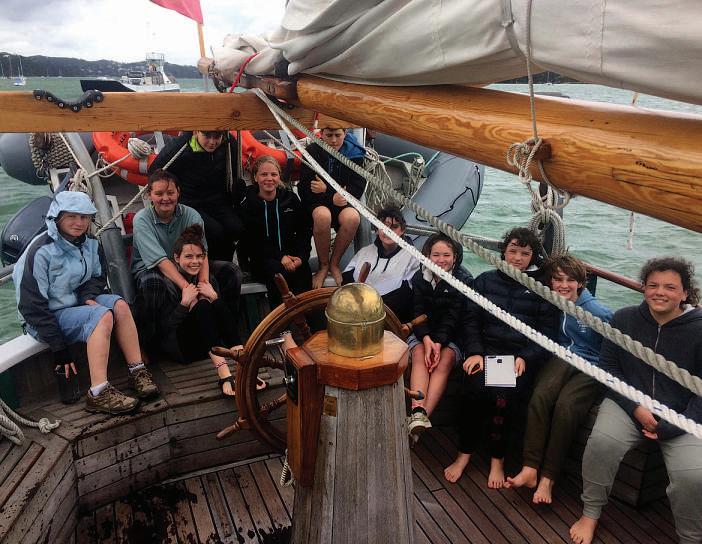
Enabling Good Lives (EGL) is a New Zealand initiative aimed at transforming disability support services. It promotes a person-centred approach, empowering disabled individuals to have greater choice and control over their lives.
Itistheendof daytwo.Weareanchoredin MahinepuaBayon abeautifulnight, thesort thatyouexpectatthebeginningofspring. Theweatherissettledandtheanchorage calm.Itislightsoutand everyoneshouldbe tired.Wehave early startstoeachday andthe crew and myselfaresnuggledin our narrow, enclosedbunks.Thecurtainispulled,thelight switchedonandperhaps ashort readbefore fallingasleep.Thisisthefirstindividualtime oftheday.Throughthe compartmentsofthe ship Icanhear alowmumbleof talkingand
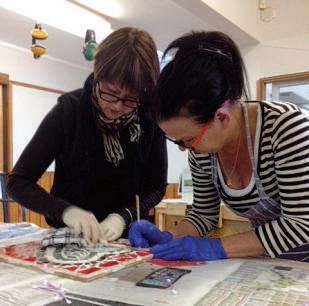
ulldayontheship earlymorningswimandchoresshouldhave been ashock forsomebutnot thisgroup.No shirking,justgettingonwithwhatneeded to bedone.Thisisthefirstthing Inoticed. Secondobser vation,throughoutthedayI observedhowsupportiveand tolerantthey areofeach other.Decisions andactivitiesas agroupseemtocomeaboutwithlittlefuss. Examplesinclude,working together to raise theanchorandsetsails forsailingupthe
people will actively have input into the way Whaikaha/Ministry of Disabled People provide services in Northland. There is also potential for the Northland Regional EGL Leadership group to influence local government bodies and other services such as Health and Education. Projects that we have supported in Northland so far are, the future development of an ECO friendly residential and respite service in Kaitaia, regular

log impressedbytheoverwhelming positivityin ourdiscussions:
Tai Tokerau Maori Trust Board Building 3 - 5 Hunt Street / PO Box 374 Whangarei
“Ienjoylistening to othersrecalling positive timesandhearingaboutwhattheir sibling islike.”
Phone 09 430 3406
“It’scoolthattheyshapewho youare.”
Freephone 0800 430 3406
Email info@tiaho.org.nz
“Experiencesthat Ihavehadhave mademe amoreempatheticperson.”
Web www.tiaho.org.nz
Tiaho TrustDisability A Matter of Perception
This wasanexperience thatI willnever forget formany reasons,andonething is forcertain,it wasa privilegeto sharethistimewiththem.

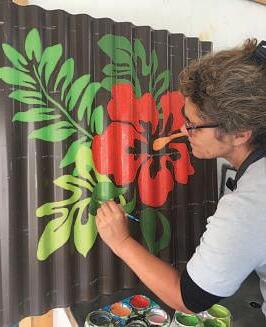
I’ve seen him hurtling down Bank Street in a power-chair with Queen (the bands blaring out of a speaker, a black velvet jacket flapping in his own slip stream.
It’s Troy Robertson.
He is a particularly stylish individual, 25 years old, spiky hair, retro post-punk clothing, a range of Jonny Depp style necklaces and chains, eye/guy liner and a charismatic broad grin makes him stand out in a particularly cool way.
Like me Troy has Cerebral Palsy. He uses a power-chair to get around that he controls with his phone.
After completing NCEA year 13 with an Excellence Endorsement, Troy went to Waikato University, studying in Business Management and majoring in finance. I asked him whether he used any innovations whilst studying. His response was impressive.
“I started using eye-tracker, it’s an assistive communication technology. It uses software to track your eye movements to use as an interface so you can use a computer because my fine motor coordination won’t allow me to use a normal keyboard or mouse. But I found the eye-tracker too slow, so I used an X-box game controller which you can use to access the intranet. From there I used Google Docs to do my Uni study”.
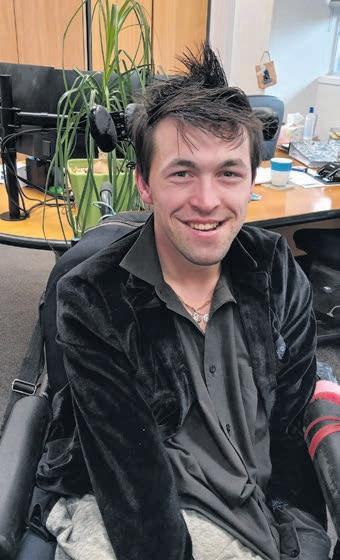
An extraordinary innovation!
Troy is a seasoned and enthusiastic party goer. I quizzed him as to any innovative solutions he has used in his partying over the years.
“Well once I went to a party in the middle

We understand that every situation is unique. Our personalised approach and practical advice provides an efficient and smooth conveyancing service.
Property Team: Lawyers: Megan Wills, Jasmine Han Legal Executives: Vicky Davis, Shannon Baines
Family Team: Lawyers: Bridget Westenra, Laura Lee, Lianka Cuppusamy
Specialising in all aspects of property and family law, trusts, wills, estates and enduring powers of attorney.




of nowhere and we had to cross a river!, he recalled.
A pparently, his friends carried him in his powerchair over the river. Really?
I thought, yet again flabbergasted by his extreme solution finding. Makes my party years seem mild.
Troy is also a talented boccia player. Boccia is an adaptive form of bowls, which uses apparatus such as ramps to roll the ball down. He won both a gold and bronze medal in Wellington. In Australia he got gold in the pairs category beating the 3rd ranked in the world. This opened up opportunities for international matches.
Troy described to me how he uses his ability to understand statistics, to use this knowledge as a guide, as to where to place the ball. He utilises spreadsheets to adjust the calibration of his moves to take into account variables such as the temperature and the floor surface, which all have an effect on the distance the ball goes.
D eveloping our personal innovative solutions to life’s challenges is a constant in the lives of people with disabilities.
Troy is a person who radiates style and charisma, along with audacious problemsolving abilities. He also has Cerebral Palsy which is sometimes is abbreviated to CP. In Troy’s case I think you will agree that it totally stands for “Cool Person”.
August 2025 9:30am - 4:00pm
- 4:00pm
Koha appreciated
Koha appreciated
Alzheimers Northland supports people with all forms of dementia.
Advisers are based in communities throughout Northland to provide a long-term point of support.
General Manager Trudi Bridges said support is often needed for many years.
The organisation offers one-to-one support over the phone and in person, offering expertise, practical knowledge and support and education.
There are also support groups for carers, where they can share experiences and gain strength in the knowledge they are not alone.
Home carer seminars also help to give caregivers, who are often spouses, further understanding of dementia and tools for coping with everyday challenges.
Day programmes are popular, providing a safe, fun and stimulating environment for the person with dementia as well as giving the full-time carers a much-needed regular break. Once clients have been approved by the District Health Board, sessions are provided free and transport can be arranged.
Social activities include sing-alongs, music therapy, baking and cooking, apple peeling, soup making, science experiments and craft projects.
Activities often involve nostalgia as clients can often recall memories from long ago rather than short-term.
Staff also promote and encourage clients to maintain familiar skills, independence and self-




worth by assisting with staff helping set tables for meals, folding washing, drying dishes, helping clean up after lunch, maintaining the vegetable garden, setting up activities and in some cases assisting staff with leading an activity.
Alzheimers Northland also offers education sessions for professional care providers, community groups and businesses that want to be more helpful to people with dementia.
Alzheimers Society Northland Inc Address Whangarei Office, 112 Corks Road, Tikipunga, Whangarei
Postal PO Box 7027, Tikipunga, Whangarei 0112
Phone 09 438 7771 or 0800 004 001 Email northland@alzheimers.org.nz Web www.alzheimersnorthland.org.nz

WHEN: Saturday 30th November 2024
WHERE: Reserve in front of Hihiaua Cultural Centre
Mobility parking at Riverbank Theatre –Lower Dent Street
For more information: 0800 430 3406 tiaho.org.nz
For Gary Nisbet, one of the hardest aspects of living with Alzheimer’s Disease was losing his licence. With a 40-year career as a crane driver on the wharves, it came as a shock when the doctor refused to renew his licence.
His wife Lyn recalls: “Gary was 80 when he was diagnosed. He went for his medical and the doctor said, ‘Well boy, I don’t think I’ll sign this for you. You’ve either got early onset Alzheimer’s or it’s just aging’.”
It was a hard pill to swallow for Gary, who’d been driving from age 15 and held every licence except a bus passenger service.
Lyn would notice Gary, 82, losing track of what he was talking about but finding ways to make things sound feasible. He’d also start mixing up his identical twin daughters. Tiredness would creep in more quickly and he’d have out-of-character outbursts.
For Lyn, as Gary’s caregiver, it’s been an isolating and exhausting journey.
“You don’t have a life, you just have to put everything on hold,” she explains, adding that she gave up indoor bowls for which she would travel on a rep team. “It got to the stage where I was, not only physically, but mentally tired and just drained.
“My daughters kept saying, ‘Mum, you need a break, you need to get away, get dad some respite care’, but he was classed as too independent, which meant I would need to leave him at home by himself.”

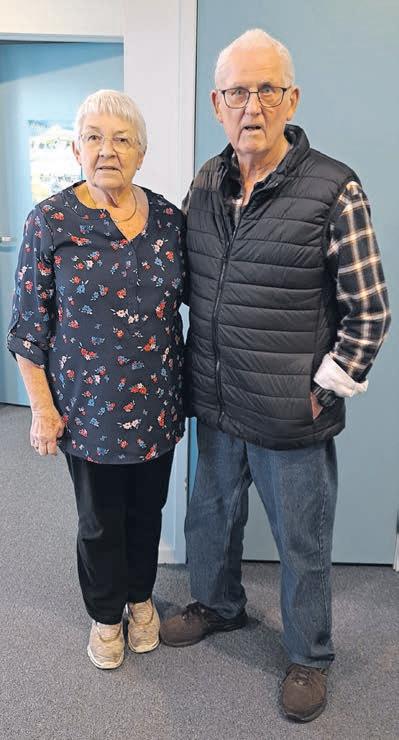
Eventually, Lyn hesitantly headed north to stay with a friend for a muchneeded night away but not without getting the major guilts. “Just as I was about to leave, Gary said, ‘Who’s gonna look after me?’”
Now, since joining Alzheimer’s Northland, Lyn has some time out while Gary attends the drop-off day program which he has gradually come to enjoy.
“He’s got used to it now, it’s become routine but at the start he wasn’t going up there and he performed something terrible.Now, I drop him off two days a week and it’s a safe place and I can go home and crawl back into bed.”
Lyn also gets some respite by going for walks and partaking in group exercise.
At the day program, Gary has reconnected with people he used to work with.
“Some are in a worse state than him and will always say, ‘Hey Gary, what are you doing here?!’ He gets made a fuss of by staff and now looks forward to it.”
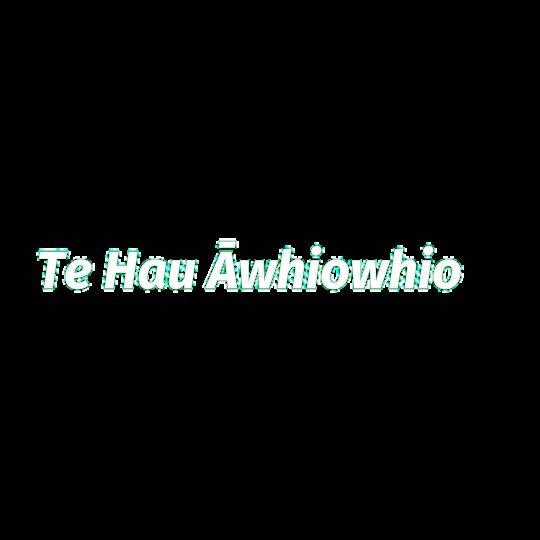
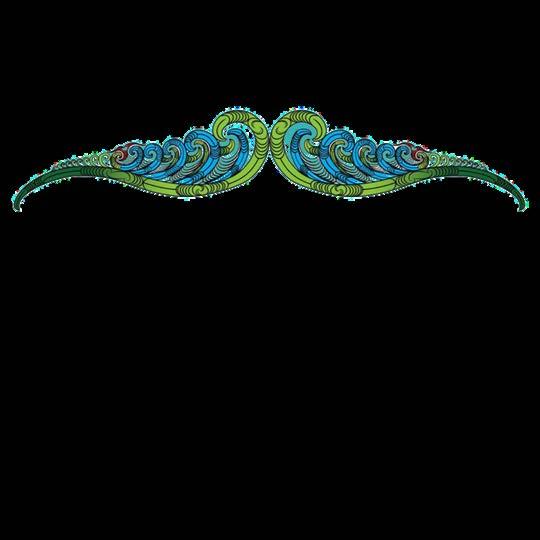
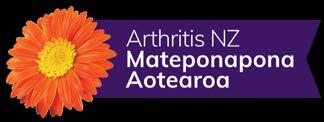
Arthritis NZ Mateponapona Aotearoa provides information and support for people with all forms of arthritis, at any age.
While there is no cure, most people can live fulfilling and productive lives with early intervention, good treatment and selfmanagement tools.
We have increased our digital service offering featuring self-management tools so that we can help more people. In the last few years, we have launched the New Zealand versions of two websites – one dedicated to people with osteoarthritis and one specifically for people with rheumatoid arthritis. Visit the osteoarthritis website tool at www.MyJointPain.co.nz and the rheumatoid arthritis website tool at www.MyRA.org.nz.
Nearly half of all people with arthritis are of working age and experience difficulwties in trying to earn a living. They may have problems getting time off work to go to specialist appointments. Workers may have to use up all their sick leave or take leave without pay when coping with a ‘flare’. Sometimes it’s the physical demands of the work itself (standing or lifting) that are difficult. Or it may be the negative perceptions of work colleagues that add to the stress.
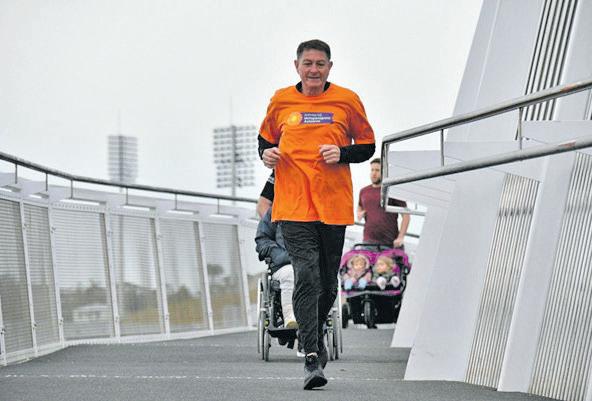
Therefore, flexible hours, modified equipment, and empathetic colleagues and managers who take a positive lead can go a long way towards making sure that workplaces are suitable and welcoming for people with arthritis.
We can help people with arthritis in the workforce navigate these challenges by advocating for them at a government level, as well as provide guidance and advice on how to talk to employers or how to access other support that might be available.
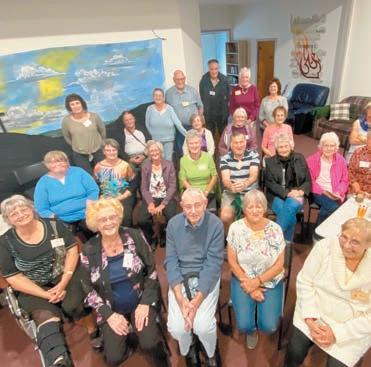
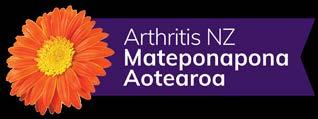
Anyone of any age who has arthritis can reach out to Arthritis Assist and Peer Support, which are available on 0800 663 463 or info@ arthritis.org.nz during business hours. People with arthritis can request a free consultation and/or information pack tailored to their needs, covering understanding of their arthritis, treatments, pain management, nutrition, mental health, employment issues and access to other support services. These information packs can be posted to your door or emailed.
There is an active arthritis support group in Whangarei and water-based exercise classes are run independently at the Aquatic Centre.
Website www.arthritis.org.nz Visit our Facebook page Email info@arthritis.org.nz
My name is Lucas. Papa, Mama and I would like to tell you a special story about me:
When I was about one year old my immune system stopped working properly. Instead of staying quiet when I had no illness my immune system decided to start attacking my joints. I stopped trying to crawl and would sit around, but even that got sore too. I would wake up several times a night crying in pain. I could not walk or even stand. My knees started to look like tennis balls, it was hard to open my mouth and then it became hard to stretch out my arms to take hold of things. I was sore all the time. Mama and Papa couldn’t figure out what was wrong. So they took me to the Doctor. I had to see lots of doctors when I was a baby/toddler and have lots of different tests. Finally, when I was two years and nine months old, a special doctor called a paediatric rheumatologist figured out something unique about me… I have a special type of arthritis called polyarticular Juvenile Idiopathic Arthritis. My parents and doctors call it JIA for short. I know that this might sound surprising, but kids get arthritis too! My Mama and Papa did not know this either when I was diagnosed.
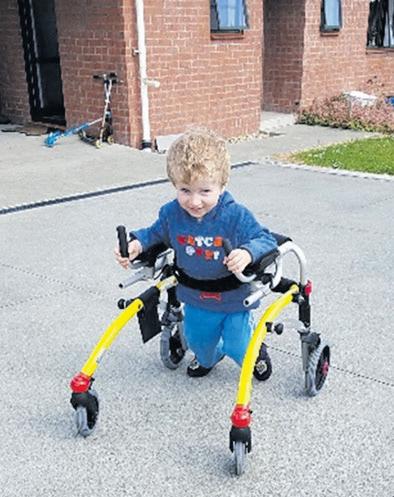
Arthritis is a disease, but you don’t need to worry because you and my friends can’t catch it from me. It’s like my body’s immune system is having a party in my joints and it doesn’t know when to stop.
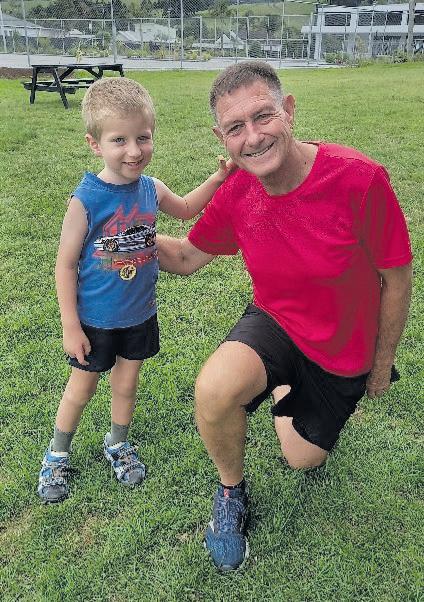
At first each week I would have a homecare nurse come and give me two injections. Then I had to stop one of my medicines as it was too hard on my body. My Mama learnt how to give me my injection so the homecare nurse didn’t need to come. The special medicine in the injection is to calm my immune system down. My Papa would hold me in a big strong cuddle and my Mama would give me the injection in my upper leg. I do not like injections! They are very sore and I would get scared at the thought of needing to have them. Just this year I had a port-a-cath (port) inserted into my chest wall. Now I go into the hospital every three or four weeks to have my medicine via an IV infusion. The IV line is hooked up to my port. Now I don’t need injections. I can even have my blood tests taken through the port!
When I was first diagnosed I couldn’t walk and I would use special equipment like walking frames to help me move. A month after I started on my medicines I took my first steps and then began walking by myself. By the time I was four years old I didn’t need my walking frame anymore. Walking and moving still made me tired, and I needed lots of physio help and swimming lessons to get my body stronger. Today I

wear splints on my feet to help them be strong.
My family like to go on lots of walks and climb all the mountains around Whangarei. For a long time Papa or my oldest brother Caleb would carry me ALL the way. This year I managed to climb part way up Mt Manaia and Mt Parihaka by myself. Then Papa or Caleb helped carry me the rest of the way up and down. Last year we met Mr Hill for the first time. He also has arthritis, but it is not the same one as mine. I walked The Loop with him three times when he was doing his walk for Arthritis New Zealand. Last week I ran in my school cross country for the first time. It was hard work and I got even sorer doing it; but I still did it and everyone was cheering for me at the finish line.
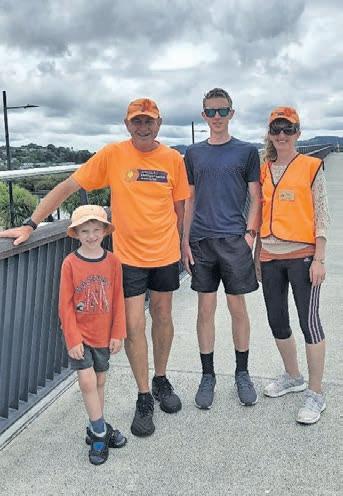
This year Arthritis NZ sponsored Mama and I to go to the Arthritis NZ Family Camp. I got to fly in an aeroplane for the first time and ride on a big bus. The camp was at Totara Springs. I had fun meeting other children who also have arthritis. I got to go on the super big hydro slide – even Mama went on it with me!
Thank you for reading my story and understanding.


HEavinglivedalmost15yearswith a guidedog, Stevesaysthatguidedogs arehislife.
very day, an average of six New Zealanders turn to Blind Low Vision NZ for support with sight loss.
Stevedidn’talways feelthis waythough.He saysheinitially“rebelled” to theideaofgetting aguidedog,due to acceptinghisvisionloss.
When Stevewas 16yearsold,he was diagnosedwithglaucoma.Hesayshedidn’t paymuch attention to ituntilabout15years agowhenhisvision started toget worse.
Agoodfriendofhissuggestedheget aguide dog.It took alot of convincing togetSteve to beopen to theidea. Now hesayshewouldbe “deadinwaterwithout aguidedog”.
The organisation advocates for accessible and inclusive communities because they believe people with sight loss should be able to get around public spaces like any other member of the community, access the same information, and pursue the career of their dreams without unnecessary barriers. Age-related conditions in New Zealand are rising as our population ages, so we also want New Zealand to do better at taking eye health seriously.
Steveandhis guidedogshavebeengoing to andfromhisplaceofworkatInland Revenue inWhangāreifor manyyears.Theytravel frequentlyonplanes too.
As an active person, Stevesayshe wantsto beout walking ever ydayuntilhe can’twalk anymore.Hisguidedog, Archie,makesthat possible forhim.
The four most common eye diseases causing blindness and partial sight are age-related macular degeneration, diabetic retinopathy, glaucoma and cataracts. Blind Low Vision NZ help people who have limited useful sight, making it challenging to do some day-to-day tasks even with the best corrective lenses.
Three quarters of the people they help have some vision (which they call low vision), and the remainder are blind.
BeforeArchie, Stevehadtwootherguide dogs, CasperandHadley. Heexplainsthateach guide dogserved adifferentpurposeinthat pointinhislife.
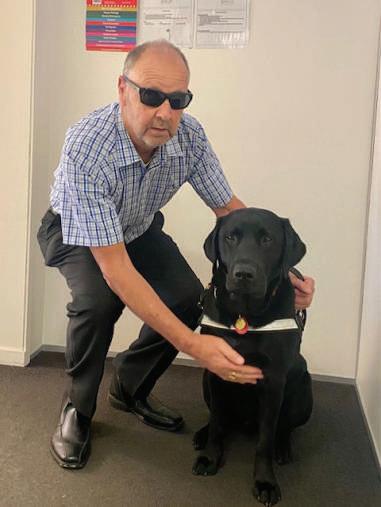
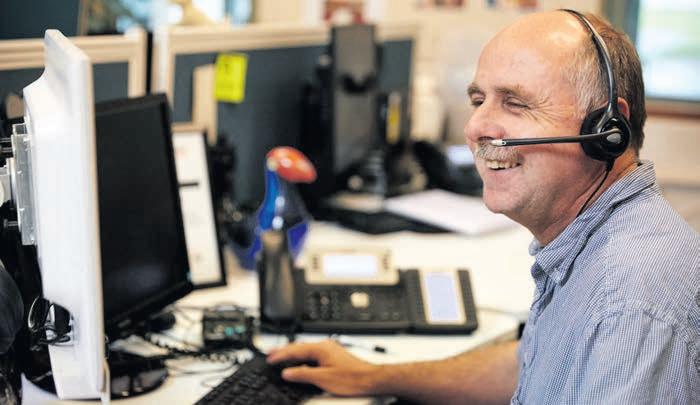
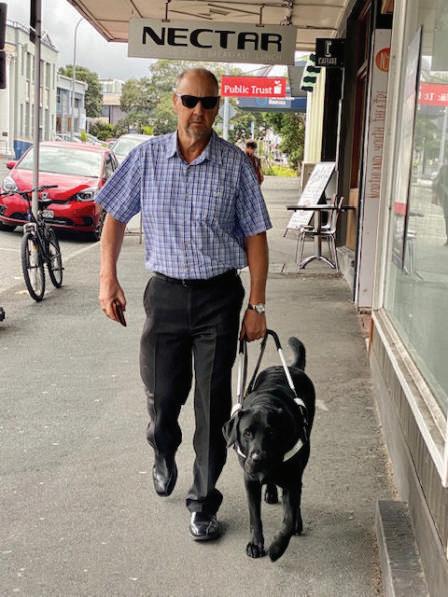
Blind Low Vision NZ is New Zealand’s leading providing practical and emotional support for people with vision loss. Our vision rehabilitation services are personalised to meet your needs and goals, however big or small. Clients can register online or over the phone to gain access to a wider range of support and resources.
Stevedescribeshowhefindsitdifficultin betweenguidedogsandhas to go back to using awhitecane.Thattransitionperiod inbetweencan be toughasheissoused to having aguide dog.Hesays nothing compares to having aguidedog.
“Idon’t want to bewithoutaguide dog ever” Steveexclaims.
Blind Low Vision NZ services are free. We can also connect you with various external
• OphthalmicEyeExaminations
hearing aid funding. Blind Low Vision NZ administers internal funds that can help with the cost of low vision aids, glasses, musical equipment, tertiary education, and special funds for children. Some clients experience dual sensory loss, so deafblind services are also available anywhere in New Zealand.
NotonlydoesArchiehelp Steveget around safely.Archiealsogives Steveaconfidence boost. Having aguidedoghaschangedthe person Steveis.Having asenseofsecuritythat Archieprovides himwithallows himtomove throughspaceswith confidence.
StevesaysthatArchieis aver ysocialand playfulpup.
“Whenhehashisharnessonheiswellbehaved,withouthis harness he’sanutter”
Blind Low Vision NZ has an extensive library, with collections and services including the EasyReader app and the Amazon Alexa Echo device. Help with daily life and travelling around the community
• CataractExtractionandlensimplant
• Pter ygiumExcisionplusconjunctivegraft
• Injection forwetagerelatedMacularDegeneration
• Glaucomatreatment • Cataractsurgery









If you have any questions, call our team on 0800 24 33 33 or email generalenquiries@blindlowvision.org.nz.
Guide dogsare likefamily,Steve saystheir companionshipand their relationshipishard to explaininwords.
You will find us at:
277 Kamo Road, Whangarei
“For aseriouslyvisuallyimpairedperson, aguidedogislikehaving acar.Puttingthe harnessonisliketurningthe ke yina car, it givesyou mobilityand you canessentially goto most places.The differencebetween having adogandnothaving adogisasbig astheocean.”
Phone 09 437 1199
Office hours Monday – Friday 9am to 2pm Website www.blindlowvision.org.nz












EyeSpecialists: DavidDalzielandAndrew Watts
Phone:09-9727022
12 Ke nsington Ave,Whangarei
Email :p ceye s@xtra.co.nz
We bsi te :w ww.bit.do/EyeCent re


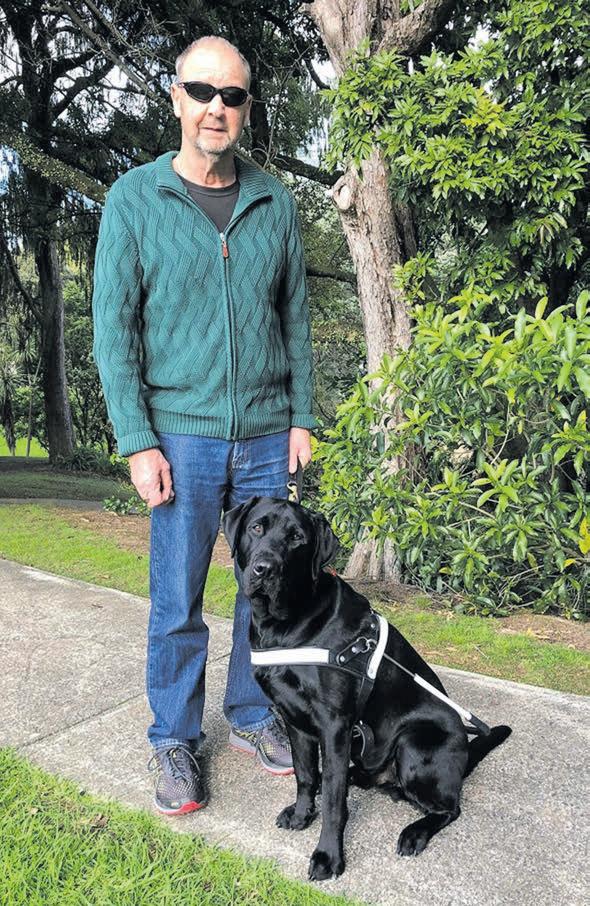

“Nothing compares to having a guide dog.”
Steve says being matched with a guide dog transformed his life. He can’t imagine life without a guide dog by his side, especially his new best mate, Archie. Thank you for making this possible!
Steve was just 16 when he was diagnosed with glaucoma. When his vision became worse about 15 years later, he started to take his condition seriously.
Steve was over the moon when matched with his first guide dog, Casper. Steve says each guide dog served a different purpose at each stage of his life – first Casper, then Hadley and now Archie.
Steve’s guide dogs, trained thanks to generous people like you, have given him freedom and incredible confidence. With a guide dog by his side, he has travelled to and from his place of work for many years, and also on planes.
“I don’t ever want to be without a guide dog, and I’m so grateful to have been matched not once but three times. Thank you so much to all donors.”
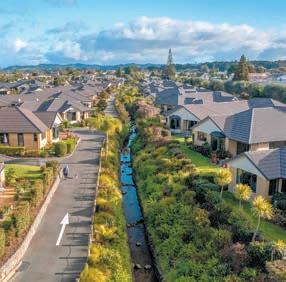

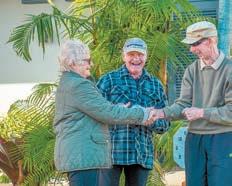


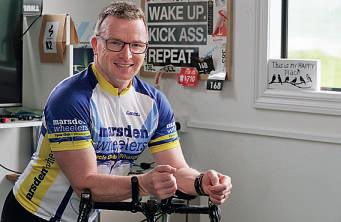
Binjury every 15 minutes, that’s 99 per day. Brain Injury is the leading cause of death and disability in NZ.
Iwasinvolvedin aseriouscaraccidentin 2006.Followingtheaccident Ispent6 monthsintheBrainInjuryUnitatRoyal RehabinSydney.
A brain injury can have life changing results for both the injured person and their family / whanau, friends, and community.
The causes of brain injury are many and varied, most are due to falls 38%, followed by crashes and assaults. It can be very difficult to predict what the long-term
Ihave not beenableto retur ntoany formofemploymentduetomybraininjury buthavebeenabletoparticipatein rowing andcyclingandthishasgivenme asense ofpurposeandachievementaswellas enablingmetomeetmanynewpeopleand makenewfriends. Ialsodoyogawhichisa greatwaytobalanceouttheveryphysical sportingactivitiesthat Ido.
Ifirststarted rowingin2010whenI wasstilllivinginSydney. Itwas reallyhard atthebeginningbuttheworstthingthat happenedwasthat Igotwetonthecouple ofoccasionswhen Ifelloutoftheboat. While rowingwasfun, Ialsoenjoyedthe competitivesideand rowedin alotof events.Rowinggavemetheopportunity in2013to rowintheinfamousHeadofthe CharlesRegattainBoston,aspartofan AustralianPara-rowingcrew.Wewonour
outlook might be as every person’s injury and recovery is different.
eventandwewerethefirsteverinternational Para-crewtoenterthe event. Through rowing ImetsomeParacyclists,whowereexPara-rowers,and theyencouragedmetogive roadandtrack cycling atry.Ididand Ilovedit. Ihave competedincompetitivecyclingevents, longenduranceeventsandtrackevents andenjoythemall.Unlike rowing,cyclingis somethingthat Icandoonmyownandin agroup,andthere’salwaysthecoffeeand chatwithmatesattheendoftheride.
The Brain Injury Association Northland provides a safe, barrier free service to support and assist people to understand and navigate through the confusing aftermath of an injury, this includes both the individual with the injury, as well as their family and supporters.
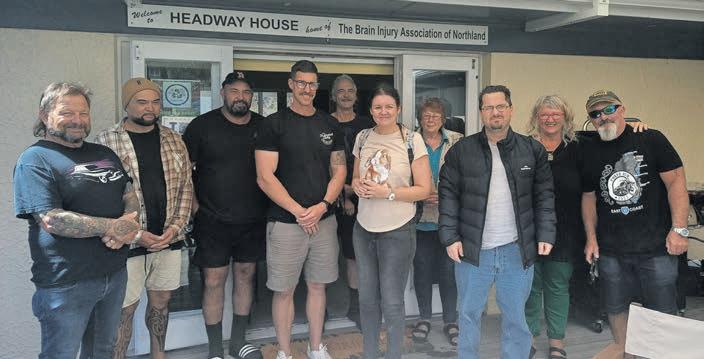
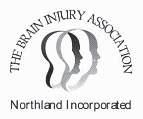
Thebestthing aboutdiscovering rowing,cyclingand yogafollowingmyaccidentisthattheyare healthythingstobedoingtokeep my mind andbodyactive.

and enables people living with brain injury to better communicate who they are with the world around them.


NowI’mlivinginWhangarei,I’mdoinga lotofcyclingwiththe localclub“Marsden Wheelers”andpracticeyogaatTheLoft Studiowith Tim. Ihaven’tdone alotof rowingsinceshiftinghere,but IknowI canattheWhangareiRowingClubwhenI choosetodothat againsometime.
Currently the organisation has two Liaison Officers – Vikki Herdman and Brenda Williams. We cover from Te Hana to Cape Reinga. We hold monthly support groups in several areas in Northland. We support people to attend appointments and


Age Concerns work hard to reduce the harmful effects of elder abuse. World Elder Abuse Awareness Day (15th June) helps to shine light on this often-hidden issue in our communities. We emphasise that anyone can call us at Age Concern Kaitaia & District with a question about the safety of an older person. Even if you are unsure, you have a hunch, or an inkling that something may be amiss with an older person, we wo uld rather you call us sooner, than wait until you have definite proof. The longer elder abuse goes on for, the more harm is caused, and the harder it becomes to untangle the effects on older people and within their family/whānau.
What does Age Concern do to prevent elder abuse and neglect?
Age Concern Kaitaia & District works alongside many other agencies such as health services, needs assessment services, the police, banks, residential care facilities, iwi and other community agencies, to ensure the best possible outcome for older people.
Key messages: Spot the Signs!
Elder abuse is harmful.

• Injuries broken
• Malnourishment
• Poor
• Symptoms or confusion
IHow prevvalent is elder abuse?
Age Concern Kaitaia & District offers free, confidential, specialist Elder Abuse Response Services for all of Northland. (Kaipara District, Whangarei District, Mid-North and Far North District) We work with older people and their family/whānau to stop abuse, reduce the damage caused, and increase understanding to keep all family members safe.
We made it! We got to Milford sound on Thursday 16th March. 15 days, 2 hours, and 30 minutes after leaving Ship Cove at the top of Queen Charlotte Sound.
Elder abuse affects our society.
Include older people in decision-making
• Unexplained of money
• Withdrawal or friends
Age Concerns work hard to reduce the harmful effects of elder abuse. World Elder Abuse Awareness Day (15th June) helps to shine light on this often-hidden issue in our communities. We emphasise that anyone can call us at Age Concern Kaitaia & District with a question about the safety of an older person. Even if you are unsure, you have a hunch, or an inkling that something may be amiss with an older person, we would rather you call us sooner, than wait until you have definite proof. The longer elder abuse goes on for, the more harm is caused, and the harder it becomes to untangle the effects on older people and within their family/whānau.
n June 2020 my world changed in an instant when I blacked out and sustained a concussion. After the injury it was a very confusing and difficult time for myself and the people around me especially my partner Tanya. Vikki and her team at BIAN Whangarei helped me to understand what was going on in my head and get the support that we needed. I could not have done it on my own, I was unable to work out what was going on and would get depressed, angry and feel that I couldn’t achieve anything like I use too.
Increases in the numbers of cases that elder abuse agencies deal with, does not prove that the rate of elder abuse is increasing, but it shows that it is being reported more often. This reinforces why Age Concern keeps raising awareness about elder abuse and neglect. Anyone in any community can contact Age Concern, to talk through signs that query older people/kaumātua’s safety .
What are the effects of elder abu se?
Age Concern Kaitaia & District works alongside many other agencies such as health services, needs assessment services, the police, banks, residential care facilities, iwi and other community agencies, to ensure the best possible outcome for older people
How prevalent is elder abuse?
Protect the rights of older people
in the Molesworth to zero degrees going over the Duffers saddle on the Nevis. From sea level to about 1200 metres above.
Signs you might spot include:
The scenery was amazing, it can make you feel very small, to be on top of the world.
• Injuries such as bruises, cuts, or broken bones
• Malnourishment or weight loss
• Poor hygiene
Long distance cycling gave me something I could do with a brain injury. The feeling of self-achievement was huge, I was out in the countryside, wind in my lungs. The constant rhythm of pedalling is almost like meditation, I can zone out and calm the noise in my head. In multi day events the routine becomes eat, sleep, ride and let the surroundings come in if you want them to.
Increases in the numbers of cases that elder abuse agencies deal with, does not prove that the rate of elder abuse is increasing, but it shows that it is being reported more often. This reinforces why Age Concern keeps raising awareness about elder abuse and neglect
Anyone in any community can contact Age Concern, to talk through signs that query older people/kaumātua’s safety.
What are the effects of elder abuse?
Raising funds for the Brain Injury Association while on this ride is a little way for me to give back.
We made it!
The personal losses associated with abuse can be devastating and include the loss of independence, homes, lifesavings, health, dignity, and security
We got to Milford sound on Thursday 16th March. 15 days, 2 hours, and 30 minutes after leaving Ship Cove at the top of Queen Charlotte Sound.
What an epic journey. Diverse highs and lows best describe the trip. From 40 degrees
Elder abuse and neglect can be a significant cause of injury, illness, lost productivity, isolation, and despair. Abuse can reduce a person’s independence by undermining their self-esteem and confidence. Elder abuse damages family and whānau relationships, financial security, and mental and physical health, as well as increasing dependency on health and support agencies which may result in the need for residential care. Elder abuse and neglect have a negative impact on the wellbeing and quality of life of older people But it also
Call Age Concern
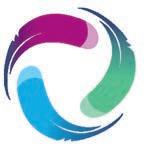

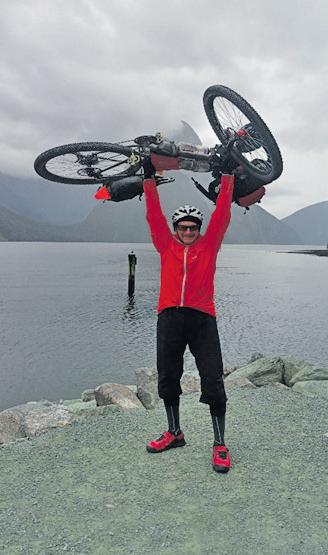
We met lots of awesome people, fellow S2S riders, locals, travellers and anyone with a dog for us to get our fix.
• Symptoms of anxiety, depression, or confusion
The personal losses associated with abuse can be devastating and include the loss of independence, homes, lifesavings, health, dignity, and security
• Unexplained transactions or loss of money
Some of the things I have learnt on my brain injury journey that I would like to share. Monitor and manage your symptoms. I was a slow learner and paid the price. Accept the new you (hard for us over achievers). It’s Okay to ask for help.
• Withdrawal from family members or friends
Elder abuse and neglect can be a significant cause of injury, illness, lost productivity, isolation, and despair. Abuse can reduce a person’s independence by undermining their self-esteem and confidence. Elder abuse damages family and whānau relationships, financial security, and mental and physical health, as well as increasing dependency on health and support agencies which may result in the need for residential care . Elder abuse and neglect have a negative impact on the wellbeing and quality of life of older people. But it also detrimental to the image of ourselves as living in a welcoming and inclusive society. Call Age Concern if you spot the signs of older people being harmed
Prevent elder abuse and neglect
Realise and accept that your perception has changed. Understanding the impact your injury has on others around you. Sometimes we blame our brain injury but that headache, anger, lack of focus may be from dehydration, a lack of sleep or over doing things.
Age Concerns around the country see the harm elder abuse causes in eleven new cases each working day , so we are committed to raise awareness to prevent elder abuse and neglect. World Elder Abuse Awareness Day is a great opportunity for everyone to learn more about this global concern that affects New Zealanders too.
One thing is for sure “it does get better”
Prevent elder Age Concerns the harm elder new cases e committed prevent elder Elder Abuse opportunity about this global New Zealanders We encourage signs to contact question, query, inkling about being harmed.
Thank you, Rob Searle you raised $625 dollars, to assist us to keep supporting our TBI community.
We encourage anyone who spots the signs to contact Age Concern with a question, query, concern, hunch, or inkling about an older person/kaumātua

CCS Disability Action is a disability support and advocacy organisation.
CCS Disability Action Northland covers from Cape Reinga to Wellsford.
We support disabled people and whānau of all ages and all impairment types. We partner with disabled people, their families and whānau to enable them to have choice and control in their lives.
Our vision is to see every disabled person and whānau hauā interwoven into the lives of their whānau and community.
Our services
• A range of respite options designed to provide a positive and rewarding experience for your child.
• Community Support Coordinators who provide advocacy and support to remove any barriers to accessing the quality education of your choice.
• Connecting you with paid and sustainable employment by providing individualised support for potential employees and employers.
• Ongoing vocational support to assist disabled people to participate in training, work, or community activities.
• Providing support, information and options for young people preparing to leave school for further study or employment.
• Working in partnership with disabled people to support them to lead
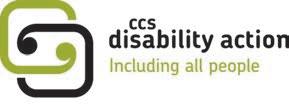
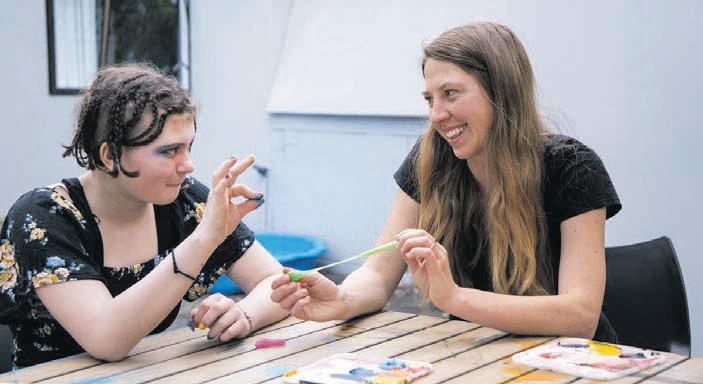
independent lives. We provide community-based support and work with people who would like to move from residential care into their own home.
• A K aranga Maha group who support people of Māori and Pacific Island descent to engage with their own cultural identities and develop leadership.
• CCS Disability Action administers the Mobility Parking permit service across Aotearoa.
• We also offer a nationwide Library and Information service. This provides a wide range of resources on disability and the wider disability sector. Anyone can use the Information Service free of charge, no
CCS Disability Action supports disabled people and whānau of all ages and all impairment types.
Our friendly and helpful team work across Te Tai Tokerau and we offer a wide range of free services. Self-referrals are welcome.
Get in touch today
09 437 1899 or 0800 227 2255 Northland@ccsDisabilityAction.org.nz www.ccsDisabilityAction.org.nz
matter where they are in New Zealand
We welcome-self referral and can support you to access the right pathway for the supports you need.
We would love to connect with you.
CCS Disability Action Northland
291 Kamo Road, Whangarei (09) 437 1899 08000 227 2255
Northland@ccsDisabilityAction.org.nz www.ccsDisabilityAction.org.nz

While being a parent is never easy, for mum-of-five Hollie, life has been more challenging than for most. Hollie called rural Kaipara home when she was forced to move after Cyclone Gabrielle saw her whānau lose everything – with their home destroyed by flooding.
Her son Jamal uses touch and some sounds to communicate. He is a curious kid and is keen to explore his environment, but his impairment means that he can find himself in unsafe situations.
“He’s so intelligent and cheeky. He’s a lovely boy,” says Hollie.
Hollie and her whānau were forced into emergency housing in Whangārei. Caring for young children in a hotel room was a juggle. “We treated it as a holiday for the
first few days. It became harder after a while as there was no outdoor area. We made it work, but it was stressful ensuring Jamal was safe,” she says.
A friend suggested she get in touch with the CCS Disability Action Northland branch. There she met Linda Halls and Robyn Hansen, community coordinators who specialise in working with families.
“I would describe Hollie as a ‘super mum’. She is a very caring person and just loves all her kids to bits. I was so pleased that she reached out so we could give her a hand,” says Robyn.
Robyn’s first focus was to support the family to find somewhere to live that suited Jamal’s needs.
She connected Hollie with the Ministry of Social Development to get the family

into transitional housing. They were successfully placed into a fully fenced property in Whangārei. “The house is awesome, and it’s got a big back garden for the kids to play in,” says Hollie.
Robyn also supported Hollie to get an assessment for disability support through the local Needs Assessment and Service Coordination (NASC) agency. The outcome of this would free up funding for much needed resources for the family.
Robyn – known as ‘Auntie Robyn’ to the kids – feels her role was simple: to connect Hollie with the ‘right’ people, to allow her to tap into the support available. It’s a relationship she feels lucky to have.
“He has the biggest smile. Jamal is such a great kid.”
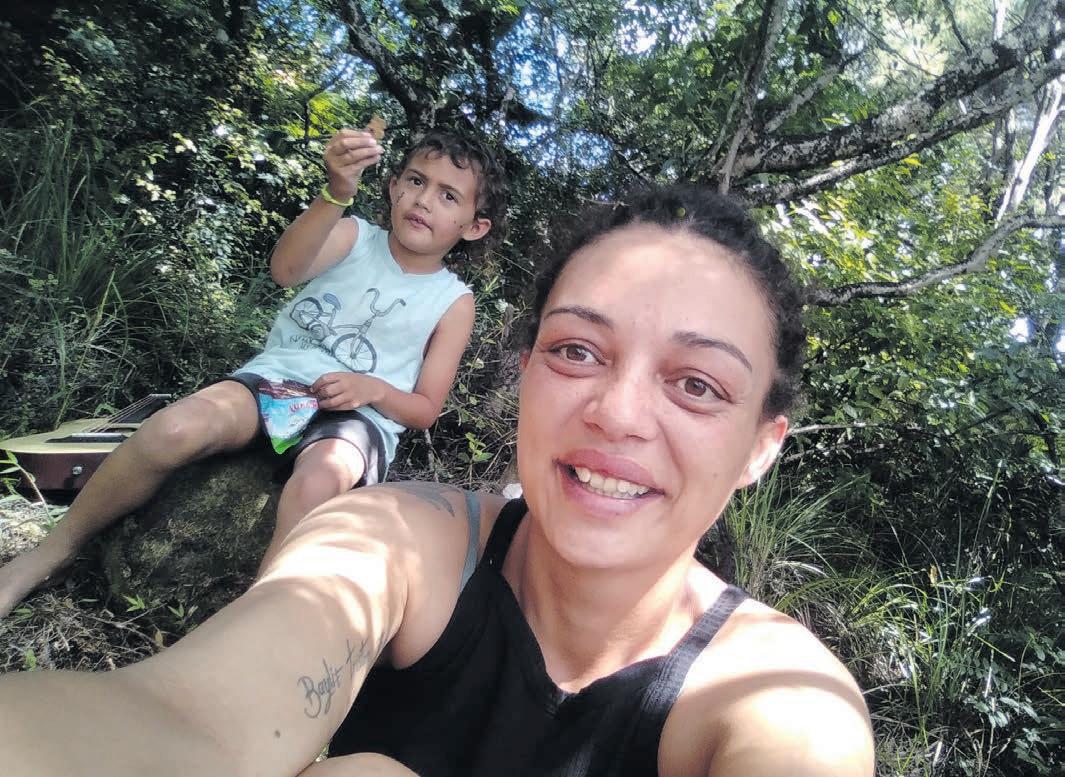
When we gotm arried,
MDeaf Aotearoa is the Disabled Persons’ Organisation representing the voice of Deaf people in Aotearoa New Zealand.
otorNeuroneDisease(MND)is commonly regardedasoneofthe mostchallengingdiseases to livewith. Itis adegenerativedisease,wherethemotor neurones,thenerve cellsthatcontrolvoluntary movementofthemuscles start towasteaway. Whilethisis atragicdisease,Judy,wholives withMND, stillseesthebeautyandpositivity inherlife.
Thisisher stor y.
Deaf Aotearoa advocates for the Deaf community, engaging with government departments and other agencies to improve access for Deaf people. We are the national service provider for Deaf people and their whānau. We are the New Zealandrepresentative member organisation of the World Federation of the Deaf (WFD).
Judy wasdiagnosedwithMNDinJanuary
shenoticed.Judylovesbikeridingonher E-Bike,butnowsheisunable to get herlegs overthebiketogoriding,andthedisease hasprogressedsoquicklysheisnowina wheelchair.She cannotpickthingsup,oropen bottles,andhastroublewithherspeech.Judy saysher conditionhasdeterioratedquickly sinceJanuar y.
Judynow reliesonherhusbandof27years, Bill forsupportandhelpwith basic tasks.Bill hashadmedicaldifficultiesofhisown,buthe

more accessible and inclusive place to be.
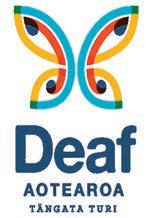
Judysayssheis fortunateto havelots of help,hersister-in-lawand cousinvisitonce aweek,andsheonlyhas to askifshe wants anythingdone forher.Butshedoesnotwant to encroachonpeople’s lives,yetsheknowsthey arethereifsheneedsthem.

Every May, Deaf Aotearoa organises NEW ZEALAND SIGN LANGUAGE WEEK – a celebration of one of the country’s official languages. NZSL Week is a chance for the Deaf community to stand proud as Deaf, and to celebrate their language and culture. It also works to break down barriers, fears and misconceptions. NZSL Week lets Deaf New Zealanders put their hands up and be seen! Our vision for NZSL Week is to increase awareness and understanding of NZSL and the Deaf community, and to empower and strengthen the Deaf community.
Deaf Aotearoa is community focussed and surpluses go back to the Deaf community by way of sponsorships and donations.
BeforeherMNDdiagnosis,Judyloved volunteering at herlocalHospiceShopwhich shedid for11.5years.Judywould cycleinto Whangareifromherhome to workthere. She startedout re-arrangingtheshopand sortingtheinwards goodsandwhenshe was unable to dothat, shemoved to Antiquesand Collectables,whichsheloved.Althoughshe missesherworkandfriendsthere,sheloves to catchupwiththemwhenshe can,describing themas agreat bunchofpeople.
Deaf Aotearoa
Freetext - 8223
Judywould tellanyonewhohas recently received adiagnosisofMNDthattheymustbe positive.MNDis adeathsentence,butthereis nopointin gettingupsetaboutsomethingyou cannotfix.
Address 1A Deveron Street, Whangarei
Open Monday to Thursday 9am-4pm and Friday by appointment
JudyandBillMcCoid


Judyhas afulllifeasabusyGranandwife. Describedas apositiveand can-dopersonwho likes to help others,Judyis anotableexample ofsomeonewhoalwaysseesthelightandlove intheworld,nomatterthesituation.
For other methods of contact go to our Contact Us page on our website: Contact Us – Deaf Aotearoa











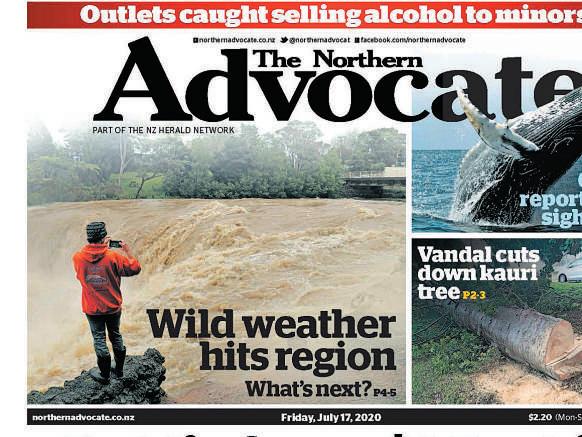























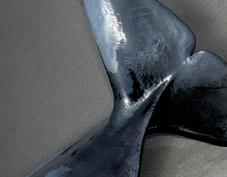












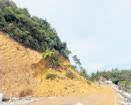
Hello! WAVING (Open-palm hand moving horizontally) My name is Alana Best. In written English I always use capital letters when I am using New Zealand Sign Language (NZSL).
For example: (fs) A – L – A-N- A. This is my name fingerspelled out in NZSL. Fs in the brackets stands for fingerspelling.
One common sentence would be: HI MY NAME (fs) A-L-A-N-A.
A “gloss” record would be HI (waving) MY (open-palm towards chest) NAME (index finger and middle finger together on forehead, move both fingers off forehead outwards) fingerspelling A – L – A – N -A.
NZSL is a visual language and people always ask me how it would be possible to record this in written language. We are a socio-linguistic minority group, with it’s language and culture. NZSL has its own grammar, structure, and syntax. We do have language features and we can document NZSL through illustrations, check out the NZSL Dictionary. It is one of the innovative solutions that the Deaf Community created decades ago to record and leave a legacy of sign language. If you are interested in learning NZSL, we do have the NZSL Club, they do show you and teach you NZSL! . Everyone is welcome to learn – you can check it out online – type https://nzsl.club/. It is run by a Deaf owner.
We do have a Deaf Club, we gather every month and enjoy a meal together at restaurants around Whangarei. I am the president of this society club. Please check out our facebook – Te Tai Tokerau – Northland Deaf Society for what we are doing next. Our society club is run independently by Northland Deaf people.
We have experts in our community, we have an upholstery expert who has his own workshops that hearing people can attend, to learn upholstery or pay him to do projects, a carpentry expert, engineers, fishing experts, soldering expert, a teacher, a sewing expert who can make clothes –


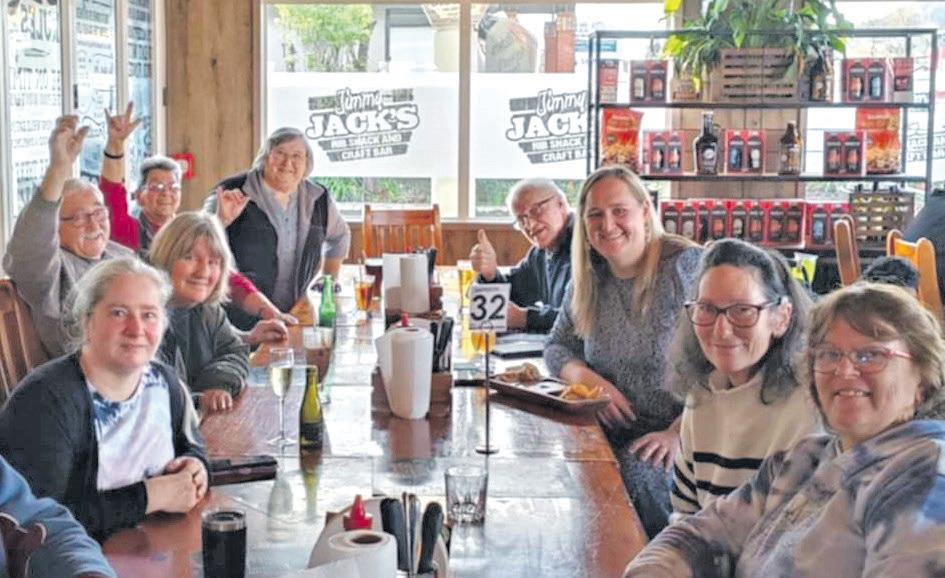
many different skills and yes, we are all Deaf. I also have a Bachelor in Applied Science so my science knowledge is often asked, so yes, some of us do have qualifications.
NZSL is a very visual language, and it gives us a unique perspective on our lives and how we see the world. With this as our strength, we can come up with innovative solutions such as communicating differently and showcasing our skills and inventing new ideas to make things go smoothly in our work. We pay attention to details and techniques that might be overlooked.
This makes us an asset to our employers. We have interpreter services, we have our mobiles/devices, our gestures for nonsigners, we can draw pictures or a visual description, and we can explain or show our ideas or solutions. We also have equipment for the workplace such as a vibrating pager, a smartwatch to alert us and we can recommend emergency flashing alerts. Our emergency alerts benefit everyone, deaf or not. Interested in knowing more about this? Contact Deaf Aotearoa for more information.
I have a clock alarm with a bed-shaker that wakes me every day for work and
at other times. I have a flashing receiver letting me know when someone is at the door, or alerting me to fire, telephone and babies/children crying. At my work, I have a flashing alert when someone enters my office, or the fire alarm is going. These cost me, a Deaf service user, nothing as these are funded by the Ministry of Social Development and provided by Deaf Aotearoa.
My role is Adults & Seniors Facilitator under Adults & Seniors service and they provide Disability Information Advisory Service (DIAS), Needs Assessment & Service Coordination (NASC), Employment support, Hearing Assistive equipment, Adult Community Education for the Deaf community. Deaf Aotearoa also covers hard of hearing or deaf community members that who don’t sign, so please feel welcome to visit or contact Deaf Aotearoa to find out about equipment for home and for workplace.
Adiagnosis of Down syndromewhether during pregnancy or birthcan be a shock. We are available to chat if you have had a recent diagnosis. We are non-judgmental, supportive listeners. We can help parents begin to understand the implications that having a child with Down syndrome may have for their family and to connect them with other families if they wish.
Coordinator, Kathy Sadgrove, says, ‘Down syndrome can sometimes come with extra challenges that parents might not be expecting. Around 40% of babies with Down syndrome are born with some form of heart condition that may range from mild to severe.’ Thankfully, things have changed considerably for the better since her son had his heart operation 30 years ago.
The support group uses a range of different media to keep in touch. Its Northland Down Syndrome Support Group Facebook page is a good way for parents
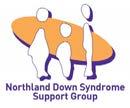

to connect with each other, as well as being a valuable resource with up to date information on Down syndrome.
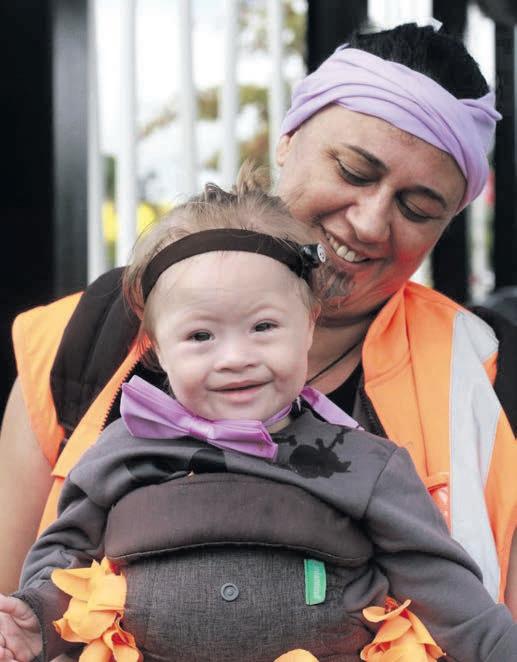
Our GreatM8’s social group for young adults meets fortnightly for social outings such as Ten Pin bowling, mini golf, dinners, arts and crafts and games nights. Monthly gym sessions held at the Whangarei Academy of Gymnastics are also popular for all family members of people with Down syndrome. The children and their siblings enjoy the activities and the parents enjoy the social networking opportunities and sharing successes.
NDSSGT also supports ECE centres, schools, and training centres/tertiary colleges working with learners with Down
syndrome. We also have a wide range of educational books, reading programmes and numeracy resources to loan.
Our Northland families celebrate World Down Syndrome Day (21st March). This year we held our Hatea Loop walk – Down for a walk. Families, supporters and community members came together, dressed in our colours - purple and orange - to celebrate Down syndrome in our Northland community.
Beyond supporting individuals and families, NDSSGT advocates for positive attitudes in the wider community, to promote the rights and inclusion of people with Down syndrome and to raise public awareness.
Contact details/General enquiries
Kathryn Sadgrove, NDSSGT Coordinator
Phone 0210 814 3744
Email ksadgrove@xtra.co.nz
Schools enquiries 021 0822 4584 (Jo Morrison)
Email NorthlandDSSG@gmail.com
Web www.NorthlandDSSG.org
Facebook Northland Down Syndrome Support Group
Being born with Down syndrome hasn’t slowed Freedom Harrison any. The 36-year-old was always a highachiever according to her mum Fiona. Freedom lives on her own and independently travels on her mobility scooter to work at Taimahi Trust, carrying out kitchen and cooking duties, as well as customer service.
“I just love it – the staff, the customers, the work and the food. I sometimes do my grocery shopping at Taimahi. There’s pizzas, pies, bikkies, fruit and veges – all sorts.”
Down syndrome is a genetic condition where a person is born with an extra chromosome. This can affect how their brain and body develop. In New Zealand, approximately one baby in one thousand (about one baby born each week) is born with Down syndrome.
Fiona believes early intervention may have played a part in Freedom’s success.
“She had a physiotherapist who set milestones by each age, such as teaching rolling over and we used flash cards, so it was (attributed to) a little bit of work from the expert and interacting. By doing enough of it, you can speed up development.
Another highlight of Freedom’s week is the Monday music therapy sessions at Raukatauri Music Therapy Centre where she
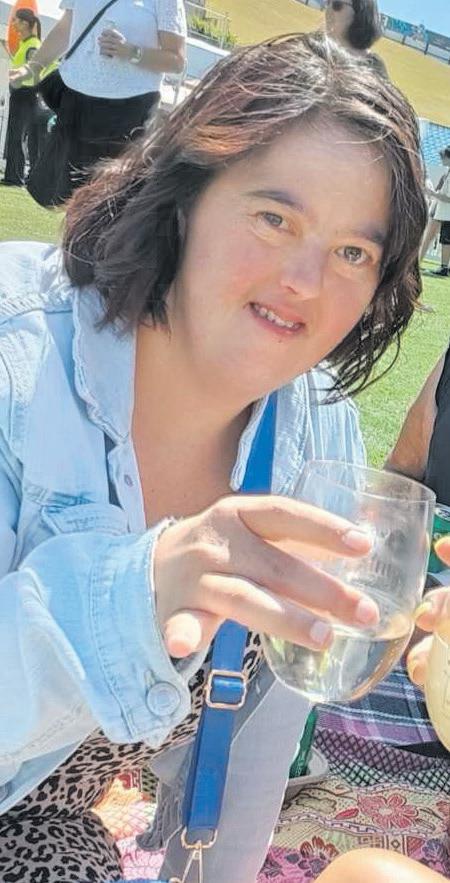

sings and plays the ukulele.
An inborn responsiveness to music exists regardless of disability, injury, illness or environment. Music therapy is the planned use of music to assist in the healing and growth of people with emotional, intellectual, physical or social challenges.
In music therapy sessions, each person actively engages with a registered music therapist through music improvised uniquely with them, as well as through favourite songs and musical activities.
Raukatauri Music Therapy Centre
Northland is partially funded by Northland Down Syndrome Trust. Regional centre manager and registered music therapist Emily Wills believes everyone has a right to access reliable communication and works to educate and support families and individuals who use alternative methods to communicate other than speech.
Says Fiona: “It’s given Freedom someone to talk to about things and she really trusts Emily. It’s helped with managing her mood and helps with stress levels. She’s learnt a number of chords and can play the ukulele as well as anyone. I think it’s done a lot for her mental health and feeling independent.”
Adds Freedom: “I love working on my lyrics and just love all the music – drums, singing and talking. I wouldn’t miss it!”






























































WEEKDAYS 6AM–9AM






















Who we are:
The Epilepsy New Zealand is a registered charity, we work to promote the welfare and interests of people living with Epilepsy and to increase public awareness and to provide free, confidential support as there is around 50.000 people that have Epilepsy and the
We train and educate health professionals, schools, community workers and workplaces and help them put plans in places such as Seizure Management plans, Risks, Safety, Triggers.
Community awareness and epilepsy seminars and talks.
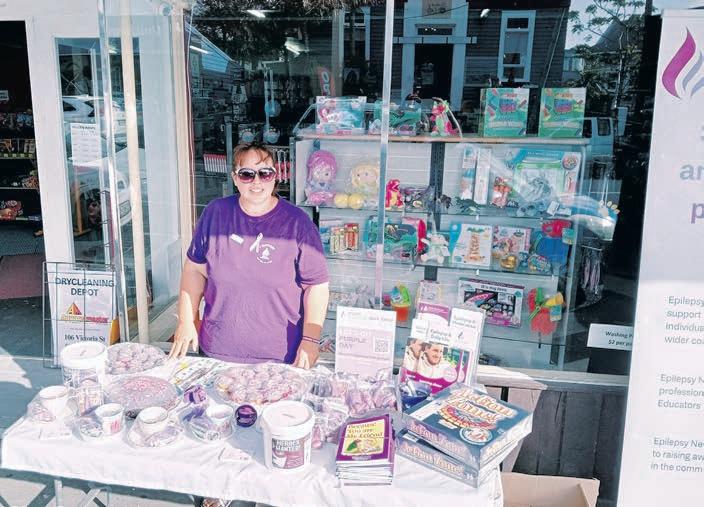

What we can provide:
• Home visits
• Face to face appointments with clients and their whanau.
• Seizure Management advice and plans to be put in place.
• Information on managing anti – seizure medication.
• Total Mobility assessment.
• Support to appointments.
• Advice and referrals for our services.
• Anyone can contact us directly.
Contact Details
Northland Educator Reokore Johnson (Kore) is only a phone call away on 027 291 6869
Freephone 0800 374 537
Hours 8.30am – 4.30pm MondayFriday
Email northland@epilepsy.org.nz Web www.epilepsy.org.nz


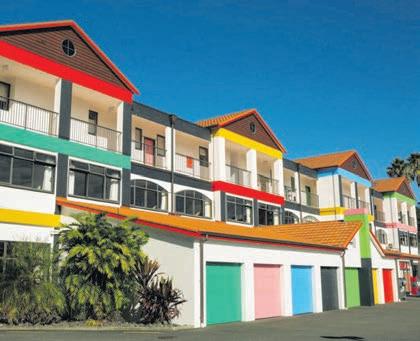
Kia Ora, I’m Piripi Phillips. I was born in Whangarei back in 1952 and went to Auckland for school and work. I have always wanted to be back in Whangarei. I was hoping to move to the beach and retire so I shifted back in 1983.
I remember when I was 5 years old, I was getting pushed on the swing by some kids. I told them to stop but they didn’t. I fell off and 3 hours later I was lying on the ground and that was the first knock to my head. I have also been assaulted and in some car accidents. I got in trouble with the law and the only way out, was through dealing with my mental health, so I went to Ward 7 to receive treatment.
I had a car accident and suffered a head injury. I ended up in Whangarei hospital and woke up feeling like fireworks were going off inside my head. I could smell something strange before I had my seizure. When I came around the doctors said I had Epilepsy.
It took me awhile to come to terms with this condition and I went into denial.

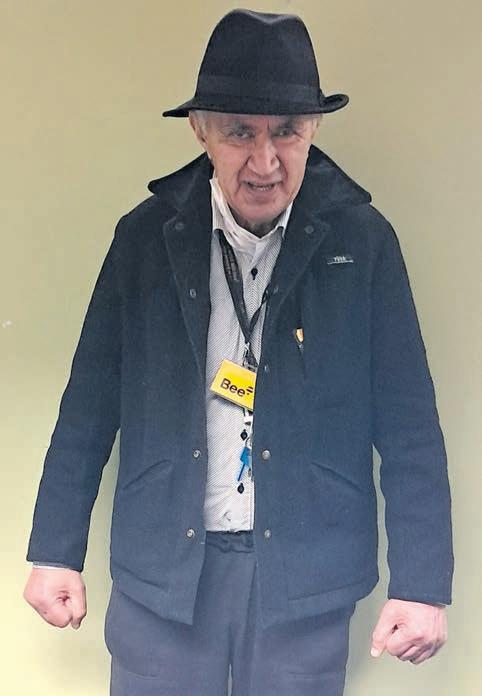
The doctors put me on Epilim and I soon found out that Epilim and alcohol don’t mix. I have to say it took me a long time to realize this, but I no longer walk that walk of addiction. It is something I overcame in my fifties and I’m now seventy.
I was diagnosed in Whangarei 30 years ago and the general public didn’t know about Epilepsy back then.
These days I take good care of myself by sleeping well. I eat a good diet of fish and vegetables.
I go to an Epilepsy Support Group once a fortnight at the Civic Arcade on a Tuesday, where we all share our experiences with Epilepsy and help each other. Having that social interaction with each other is huge as you can feel very isolated and alone.
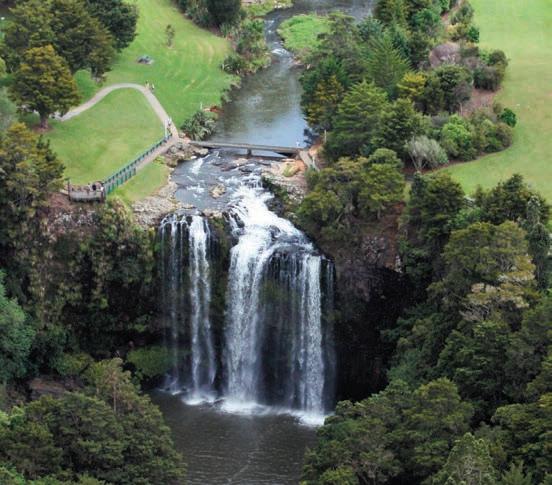

The Huntington’s Disease Association (Auckland) Inc is currently working with over 900 people living with symptoms or at risk of developing symptoms of Huntington’s Disease in the Auckland and Northland regions. Through the hard work and dedication of Nurse Practitioner Jo Dysart, Support Worker Cheenee Mandawe, and Jenna Dysart, they support carers, Whānau/ family members, GPs, medical specialists, and other agencies in aiding people with Huntington’s.
Our professional staff are Huntington’s Disease (HD) specialists who help families and professionals respond to the unique challenges of HD. The clients of the Individual and Whānau/Family Services program include the person living with HD, their caregivers, and Whānau/family members, including those at risk.
The staff provide services which include:
• A ssessing people’s needs through oneto-one consultations
• Educating clients about HD
• Providing information about community services
• Finding sources of support
• Facilitating appropriate referrals and following up
The service can involve setting goals with clients, strategizing, and solutionfocused problem-solving, either working individually with clients or in groups.
For over 30 years, we have been providing information about Huntington’s Disease to those living with HD, their carers, support agencies, and medical professionals. Information ranges from the symptomology of HD to how to manage the symptoms.
Huntington’s Disease is a hereditary neurodegenerative disorder caused by an expansion in the IT-15, or Huntington’s gene, on chromosome 4. Each child of an affected parent has a 50% chance of developing the disease. Most people with HD develop symptoms in their forties and fifties,

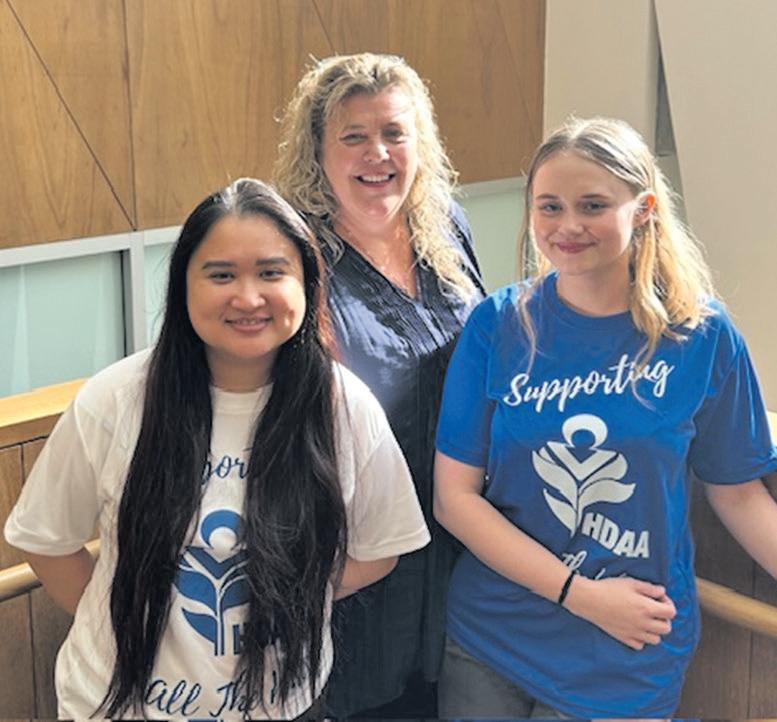
although around 10% of patients have onset of symptoms before age 20, and 10% have onset after age 60.
Huntington’s is a genetic disorder. About six in every 100,000 people have HD. It is not discriminatory and can affect both sexes and any race. Primarily, HD affects adults, with symptoms usually appearing between the ages of 35 and 45, but there is Juvenile HD, which appears in children, and late-onset HD in adults in their 60s.
There are three main types of symptoms in Huntington’s Disease: physical symptoms, including involuntary movements and diminished coordination; emotional symptoms, including depression, irritability, and obsessiveness; and cognitive symptoms, including loss of ability to recall information, loss of attention, and difficulty with decision making.
Community Connectors
We are privileged to work alongside clinical experts and DHBs, offering a multidisciplinary team approach to individuals and Whānau/family affected by HD. Along with this, we have strong links with the Auckland University Centre for Brain Research and our Patron, Sir Richard Faull. We therefore have ongoing updates on clinical research and research to help develop treatments and, one day, a cure.
Contact Details
Address PO Box 80031\Green Bay
Auckland 0604
Phone 0800 432 825
Mobile 027 432 8255
Email huntingtonsakld@xtra.co.nz Web hdauckland.org
Tēnā koe,
This piece has been written by one of our HD family members.
A Nurse Practitioner (NP) is an innovative solution in the healthcare industry due to their ability to provide high-quality, patient-centred care. NPs are advanced practice registered nurses with specialized training that allows them to diagnose and treat medical conditions, prescribe medications, and manage patient care. This flexibility helps address physician shortages, especially in underserved and rural areas.
Our whanau recently had the privilege of welcoming HDA’s NP, Jo Dysart, into our home in Whangarei. Jo provided valuable support to my husband by conducting a medication review, updating us on the latest developments in Huntington’s research, and sharing her vision to offer support to those affected by HD in regions of Aotearoa that lack specific HD support. This is a cause that our family wholeheartedly supports and believes is much needed.
For the past decade, I have been the primary support for my husband, who is HD positive, and lives with me in Whangarei. In the Northland and Far North regions, there is a lack of support and specialised HD services, making this experience extremely isolating and challenging. Dealing with the ongoing complex mental, physical, cognitive, and emotional challenges has been difficult. Currently, my husband’s care involves just

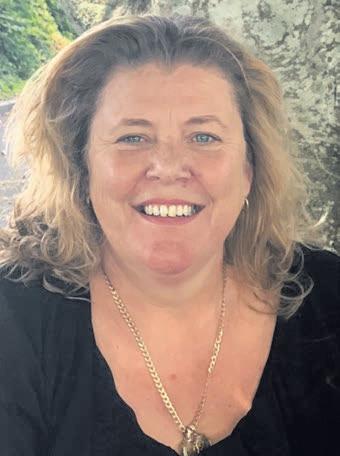
one annual visit with a neurologist, who assesses the progression of his symptoms and prescribes medication. I often have no prior knowledge of these appointments and I’ve never been included in discussions about my husband’s health and well-being. It’s frustrating because my husband doesn’t recognise his dedicated neurologist, and I have no one to contact when challenges arise. The current system is mana degrading, and we often feel unheard and forgotten. The negative impacts of this extend to everyone affected by HD, not
just those who are HD positive. Whanau and friends also carry significant burdens, and there are generations at risk of being gene carriers without any support systems in place. I have personally struggled with anxiety, depression, and overwhelm, and I know others also face these challenges regularly.
As a Māori whanau whanaungatanga, building respectful, trusting relationships with healthcare providers is crucial for us. We feel fortunate to have developed this relationship with the HDA’s NP Jo Dysart, and the positive impact of her regular visits will be immeasurable. We no longer have to repeatedly explain our situation, and Jo’s wealth of experience and knowledge in the HD field will provide us with whakamānawa/ empowerment instead of repeated trauma.
Jo Dysart’s connection with us will also help us build kotahitanga a sense of community, alleviating our isolation and giving us a sense of belonging. Most importantly, with Jo’s support, our family will be better equipped to take tino rangatiratanga of our health and wellbeing. We will finally have access to the information and knowledge that we have long been deprived of due to the lack of specialist care in Northland and the Far North. This will enable us to make informed choices about how we want to live our lives and fulfil this vision with the support Jo is willing to provide. Nāku iti noa, nā Friday 8th August 2025
9:30am - 4:00pm
The Muscular Dystrophy Association of New Zealand Inc. (MDANZ) began in the late 1950’s as a support group for families affected by muscular dystrophy. Since then, MDANZ has broadened its scope to include many other neuromuscular conditions.
Our logo is a person shown in the form of DNA. This double helix represents the genetic component to many of our conditions and reflects our commitment to families and the acknowledgement of whakapapa or family histories, which are woven through the stories of our members. Our unique governance structure ensures leadership of the organisation by individuals or family members with lived experience of a condition.
We have three regional branchesNorthern, Central, and South Island - that are supported by the national office based in Auckland. MDANZ supports individuals, families and whānau by providing specialist information, practical resources, personalised support and Fieldworker services, social networks, campaigns for public awareness and advocacy.
MDANZ National Branch Contact
Phone 0800 800 337 (MDN Support) Email info@mda.org.nz Website www.mda.org.nz
And through our research trust, we work to improve care standards and facilitate access to potential treatments for neuromuscular conditions.
Our organisation is a registered charity and we rely almost entirely on voluntary donations from the general public, trusts and other businesses/organisations to continue our work.
Neuromuscular condition is a broad umbrella term that describes a variety of muscle disorders. The conditions covered by MDANZ are rare and mostly genetic. Progressive muscle wasting leads to loss of mobility and independence, and there are often major impacts on organ systems, which can result in early loss of life. Symptoms can appear at birth or for others not until much later in life. These conditions can be unpredictable and there are limited treatment options.
Fieldworker Northern Branch Contact
Lynn Williams
Phone 021 704 227 or 09 415 5682 Email Lynn@mdn.org.nz

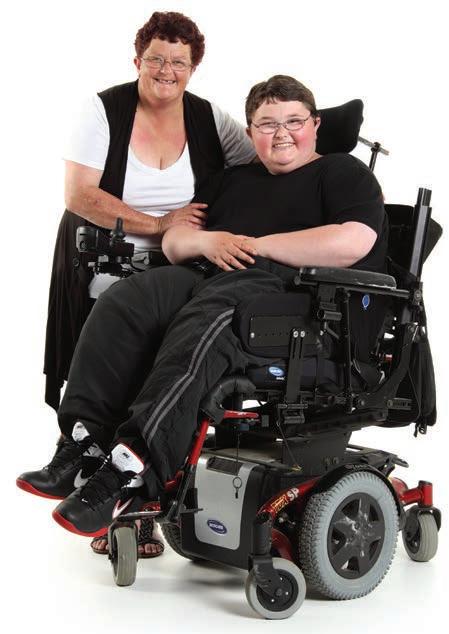
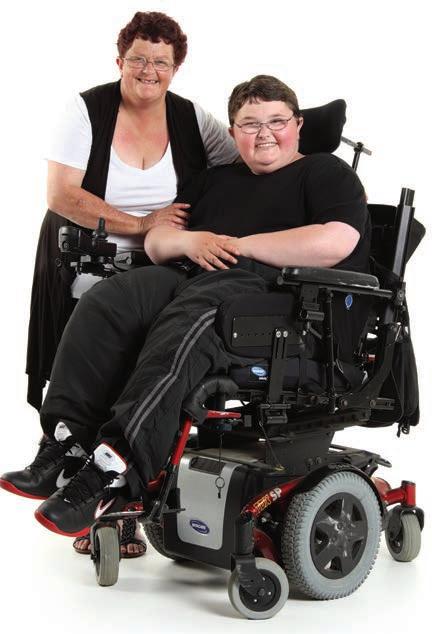
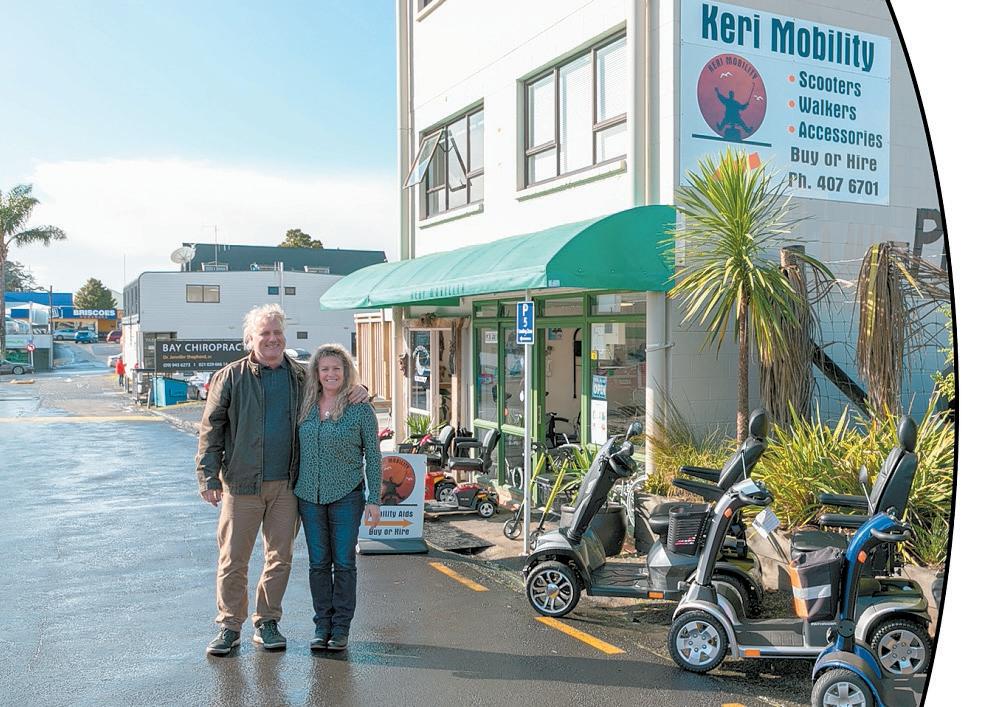
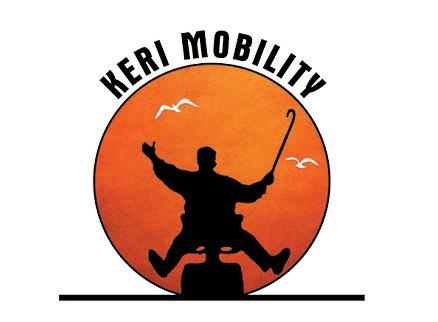

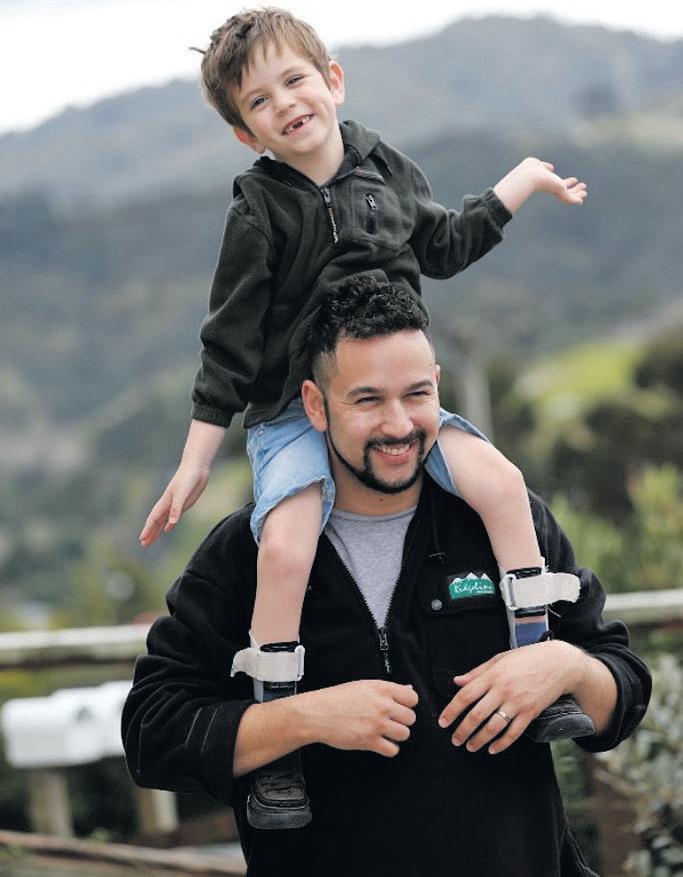
When you meet Eli Barnes for the first time you can’t help but be enamored by the young boy. He has a cheekiness and zest for life that you fall in love with.
Eli has Congenital Myopathy, a group of muscular disorders that appear at birth or in infancy. His condition is so rare there are only 29 cases worldwide.
Eli was diagnosed at birth. Sadly, there is no cure, so Eli’s family do their best to manage his symptoms. This includes his protective and loving big brother Cameron, dad and carer Grayson and mum Jess, full time real estate agent.
“We tried really hard to get pregnant and I had no idea that he would be born with any sort of muscular dystrophy. As soon as he was born the midwife noticed he was floppy, so he went through a lot of tests. When his diagnosis come through the we had some nurses talk about funeral brochures, so we were really preparing for a short time with Eli”, Jess says.
“That’s when we changed tack and decided to make the most of it. We are passionate about hitting as many milestones as we can, give him as many life experiences, and try and enjoy life together for as long as possible.”

“We don’t know what the future holds for Eli and that’s the scariest thing. Because his condition is progressive, we just want to celebrate him as much as we can – while we still can.”
Now six, Eli has just started primary school with his dad Grayson as his teacher-aide and full-time carer. Like two peas in a pod, both share a love for music and display the same quirky sense of humor.
“He gets excited going to school but because of his disability his fine motor skills are heavily impacted, so even holding a pen can be exhausting. Eli has a hard time making friends as he finds it hard to pick up on social queues, so I have to guide him and tell them what’s happening”, Grayson says.
“To accept Eli’s condition has been a long and constant learning curve. I’ve struggled with Eli’s difficulties. I don’t think that’ll change. It’s ongoing. It takes a lot of strength from the whole family, just for accepting him for who he is. Just like we would accept anyone for who they choose to be.”
Grayson and Jess try to get Eli out to as many things as they can. “I think it’s really important when you have a disability to attempt to get out there and be part of the community. It can be easier just to stay at home because everything is there, but we really push him to get out there and try new things”, Jess says.
He loves to be outside racing on his trike even though compared to a ‘normal child’ Eli’s strength and stamina is very low. But his parents encourage him to push his legs in the hopes that building those muscles is going to eventually lead to him walking and running.
Eli, Grayson, and Jess are sharing their story as part of the Roll 1k for MDA annual appeal, to help raise awareness of Kiwi’s living with neuromuscular conditions.
They’re grateful to everyone who rolls with the campaign and donates to the appeal. For the Barnes family, this will be their second time signing up to do the challenge and word on the street is that Eli has started his training already!
“ Thank you for supporting families like ours, your participation and any donation means a lot to us. “

Motor Neurone Disease NZ is a nationwide charity offering free, personalised support for people living with MND and their loved ones. Support Advisors coordinate services for their clients from multi-disciplinary teams of physiotherapists, dietitians, occupational therapists, speech language therapists, and community nurses. They act on their clients’ behalf to navigate government agencies and specialist equipment services. Support is provided in person, by phone, email and in some areas through support groups.
Fundraising events include the nationwide Walk to Defeat MND (February), and MND Action Month (June) which includes the Cuppa Tea for MND and MND Ice Bucket Challenge.
Our charity was built on the ethos of helping people affected by MND – it’s the cornerstone of all that we do. If you or a loved one has MND, we’re here for you.
To find out more, or become a client, visit mnd.org.nz.
Motor neurone disease (MND) is a fatal, rapidly progressing neurodegenerative disease that robs people of their ability to move, talk, and eventually breathe.
Often known as ALS or Lou Gehrig’s disease, MND is actually a group of conditions with ALS being by far the largest proportion. All have roughly the same pathway and always the same outcome. Little is understood about the causes of MND. There are currently very few treatment options available, and no cure. The average life expectancy is three to five years after diagnosis.
There are around 400 people living with MND in NZ at any given time, with on average 2 people dying each week and 3 people receiving a diagnosis.
The incidence rate of MND in NZ is higher than the rest of the worldresearchers are trying to find out why so we can change it.
MND can affect adults at any age, but most people diagnosed with MND are over the age of 40, with the highest incidence occurring between the ages of 50 and 70.
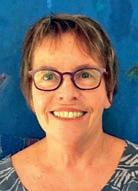
Sally King MND Support Advisor Northland I truly appreciate it when I am invited to walk alongside folk for a while. Whakawhetai ki a koe.
Work days Monday - Thursday
Phone 027 202 8166 or 09 280 3196
Web www.mnd.org.nz
Email: sally.king@mnd.org.nz

MND Action Month is our annual campaign to raise awareness of the impact of MND and raise funds towards the charity’s vital work in advocacy, education, research and support of people living with MND and their families. When raising awareness about tough
diseases, like MND, there’s no denying that conversation and connection go a long way. Recognising this power of kōrero, every June we invite New Zealanders to host a Cuppa Tea for MND or take on the MND Ice Bucket Challenge.
Both these fundraising initiatives are about
sharing stories and encouraging Kiwis to learn more about the personal, social and financial challenges that MND brings.
Motor Neurone Disease NZ receives very little government funding to deliver its services, relying on the generosity of New Zealanders to provide support and contribute to research. Over $160,000 has been raised through this years’ campaign, which will go towards growing support, information and advocacy to make time count for those affected today, as well as supporting research for a future free from MND.
To find out more visit www.mndactionmonth.org.nz.
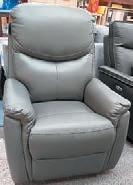



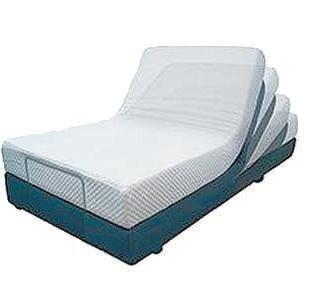
Northland Multiple Sclerosis Society offers a wide variety of services to people with MS, family/whanau members and carers. The Northland area extends from Wellsford, coast to coast to Cape Reinga.
The service provides information, education and support, encouraging a proactive approach to managing this disease. If you have MS the Society provides for you and your family and/or carers:
• A MS Field Worker who is a NZ Registered Nurse.
• Home visiting service. Support and information to you and your family about your condition or in your role as a caregiver.
• Educates you, your family and other health professionals about MS and related disorders.
• Advocates for you with other support agencies and health professionals and informs you of services available in the community.
• Provides education material and books, both available from the MS office.
• Library Books covering all aspects of MS are available to take out on loan
• Holds monthly support groups for those with MS.
• Offers a free weekly MS exercise class
• Bi-monthly newsletter which includes useful information on research and development of MS and advice on staying well.
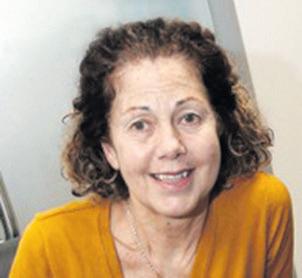
In memory of Kim Silvey 17/3/19597/6/2024
Long standing MS Committee Member
Multiple Sclerosis is one of the most common diseases of the central nervous system. A fatty substance called the myelin sheath covers the fibres of the nervous system. The myelin protects the nerves and helps the messages move between the brain and the rest of the body. In MS, the myelin sheath covering the nerves in the brain and spinal cord become scarred in scattered patches. This is multiple scarring, or sclerosis. Essentially this distorts or prevents the flow of messages from the brain and the spinal cord to other parts of the body. The distortions to the messages travelling through the nervous system cause a range of problems for the people with MS.
Although it is important to note that there is no typical set of MS symptoms, the following are common (in varying combinations or severity): Difficulty with legs, arm and hand movements, numbness and pain, problems with thinking and remembering, blurred or double vision (often only affecting one eye),


bladder and bowel problems, loss of balance and co-ordination, fatigue.
At this time the cause of MS is still unknown. However, research suggests it is likely to be a combination of the following: a reaction to a virus, possibly years after infection; exposure to an unknown environmental agent before puberty; an auto-immune reaction in which the body attacks its own tissue for an unknown reason; or a genetic susceptibility to the above triggers.
While MS still cannot be cured, much can be done to help manage the condition. There are MS-specific treatments available. These directly target the immune system. A Neurologist determines whether these are relevant for each person. Generally the person with MS works with their GP on the day to day management of the condition.
Contact Details:
1, Civic Arcade
Bank Street, Whangarei 0110 Phone (09) 438 3945
Mobile 027 539 9883
Email nthldms@xtra.co.nz
Web www.msnz.org.nz/ms
Facebook Northland Multiple Sclerosis Society



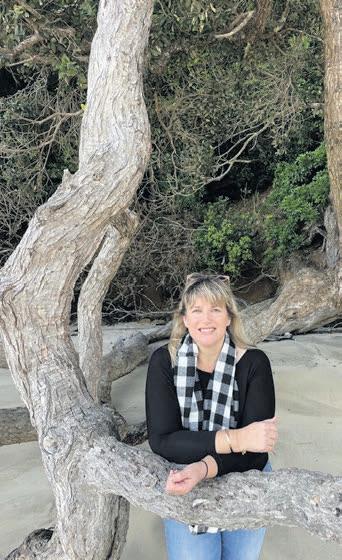
Iam grateful for the opportunity to be writing my story for this magazine & to share what sort of “Innovative Solutions” I have used to help me through my journey with MS.
I was diagnosed with relapsing remitting Multiple Sclerosis (MS) in 2016, and like many people had no idea what it was, what it meant, or how it would affect my life. When the specialist advised me what I had – I said “Eeeww Yuk, what’s that?”
Living with MS is a journey in itself, not just understanding the disease, but understanding your own body…in a way, it took being diagnosed with MS to really take a look at what my body needs to thrive. This is where “innovative solutions” come in….to keep you strong, both physically and mentally.
I have incorporated yoga, mindfulness, Pilates, swimming, regular physio appointments, Bowen treatment & massage. These things have made a difference to my journey and the symptoms that I encounter from having MS.
However, everyone is different & MS affects everyone differently, that’s why adopting solutions that are applicable to your body, journey, & lifestyle are important.
Accepting you have a disability of any sort is huge – whether it be big or small, and when you are in denial for the first few years after your diagnosis it certainly doesn’t help. Nowadays I am more open and look at people & situations in a different way.
When I had my first attack, I lost all feeling/use of the left side of my body (waist
down), while I couldn’t walk properly, feel properly, & open doors properly while on crutches, I saw the world a bit differently for the first time. How hard it was to do certain things, how people looked at you, how much more vulnerable you are.
Once I was back to ‘normal’ and could walk properly, I swore to myself that I would never take my legs for granted again & that I would treasure walking in the sunshine, or just walking full stop!
I have had other attacks that have affected different parts of my body, but I am now on medication to help prevent these from happening.
Taking stock of who you are & what is happening in your body should be done by everyone…I have certainly developed a few new innovative solutions to help me… I know that I won’t win the marathon I enter, or win a balance competition, but finding solutions to help try new things is always on my list.
Having MS has certainly made me prioritise what matters.
Finding the right innovative solutions should include whatever it takes for you to be the best version of yourself that you can be.
Our innovation award-winning internship is designed to get rangatahi whaikaha (youth with disabilities) supported into work. The program is individualised to meet interns where they’re at in the way they need to succeed. We partner with businesses throughout Whangārei and beyond, offering support to managers, their interns and whānau. To live your dream, see our website to make an application.
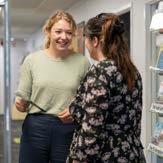
NorthAble DIAS can assist with providing free information and advice to tangata whaikaha (people with disabilities), their whānau, caregivers, providers and the public. Information can be accessed in a variety of formats, including in-person at our office, by phone, website or email. We also distribute an electronic newsletter – to subscribe, email dias@northable.org.nz
NorthAble receives funding via MSD Community Connection to support tangata whaikaha with disabilities to make emergency plans for a variety of situations, such as floods, fire and power outages as well as personal emergencies. To access this service, contact our main office via phone or email.
Our facilitation team works with people aged 0-65 who require long-term support due to neurological, learning, intellectual, physical or sensory disabilities. Our facilitators can also support you with finding the next pathway when leaving school, and if you have MSD Very High Needs funding, we can work with you to develop a holistic plan incorporating all aspects of your great life. You can check your eligibility for this service and make a referral through our website, or simply give us a call and have a chat with one of our friendly team.
Our LYNKZ program is available to individuals aged between 16-64 who have neurological, learning, intellectual, physical or sensory disabilities. LYNKZ is a community-based service that works with its whānau members to improve their life skills, engage with the wider community and increase confidence. Our main program operates in Whangārei from MondayThursday. For more information check out our website or contact our main office or check out our LYNKZ Facebook page to see what we do.
EQ+ is Northland’s largest supplier of rehab, aged-care and disability equipment and products that support people in all areas of daily living. We also have a range of hire equipment and great advice.

We service the whole of Te Tai Tokerau, with a mobile van service and products stocked at Far North Pharmacy in Kaitaia. We also deliver nationwide so check out the full range on our website at www.equipmentplus.org.nz
Whangarei Budgeting Service is dedicated to offering people advice and support with their finances. Whether it’s demystifying your income and outgoings, trying to make some savings or experiencing financial difficulties, we can help with it all through our personalised, 1 on 1 service. Our aim is for people to be able to independently manage their own finances and create a brighter future for themselves and their whānau. We can also create a tailored budgeting plan to your specific needs. We can create cashflow forecasts and even help in negotiations with current and potential creditors. Request an appointment through our website or by phoning our main office.
northable@northable.org.nz Website www.northable.org.nz www.equipmentplus.org.nz www.whangareibudgeting.co.nz

“The team at Waynes Auto Glass went above and beyond to liaise with my 92 year old Father-in.law's insurer and then repair the chips in his windscreen. They could not have been more friendly, helpful and respectful. They made time to stop and chat and cleaned the screen inside and out when the repair was complete. The bigger companies with fancy marketing could not have been less interested. THANK YOU Wayne's Autoglass for exceptional service from start to finish” -
The LYNKZ community participation programme at NorthAble provides enjoyable experiences combined with learning new skills along the way through various activities. The whānau – tangata whaikaha aged 16 to 64 – decide on the list of activities themselves, while the dedicated LYNKZ facilitators organise logistics, travel and other important admin. Included in the
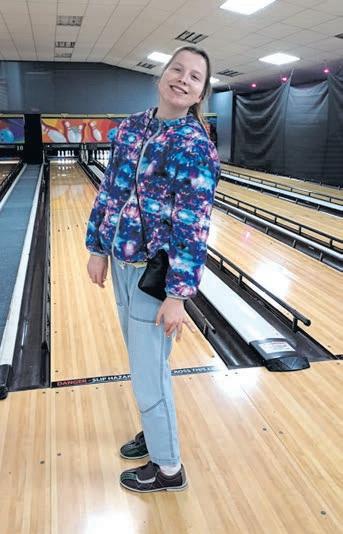

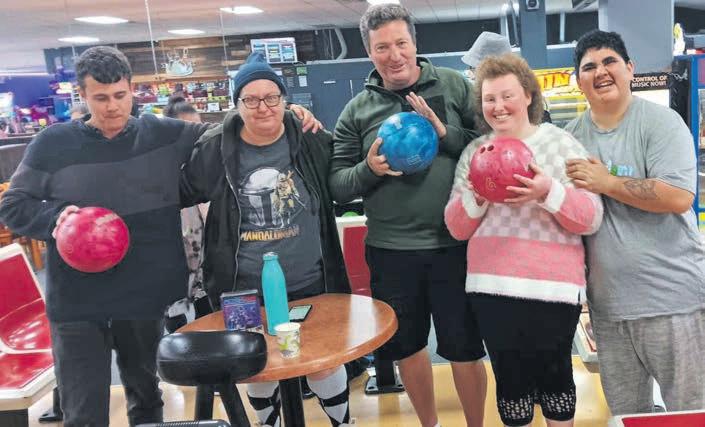
programme is goals and skills, cooking, days out at the races, visiting special venues in Auckland, like the zoo or pools, and even sometimes longer overnight getaways every now and then, such as the bus trip south to enjoy the snow in Winter 2024.
One of the more common (and popular!) activities that the whānau enjoy is bowling at Action Zone in Whangārei City. Those who come along develop and learn skills like sharing, community participation, handeye coordination and money management. Van trips from the LYNKZ hub to the
bowling alley, or a walk for added fitness if it’s sunny, is always a fun experience with lots of laughs along the way. Even some of the NorthAble staff join in from time to time, lending a hand and enjoying a game or two with whānau members.
The service may be free for MSD-funded clients and there are Outreach options available further north. To find out more about the LYNKZ Community Participation programme, or the LYNKZ Outreach programme, email lynkz@northable.org.nz or phone 0508 637 200.


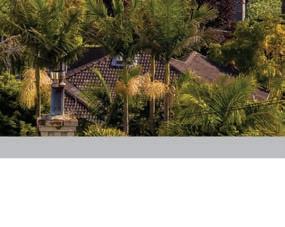

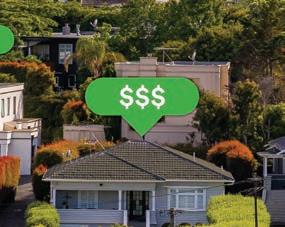
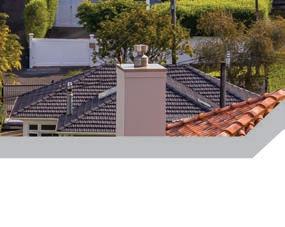
EFiveyearsago, GayeChaplinknewlittle aboutAlzheimer ’s Disease so shenever wouldhavepredictedhercurrent role asan Alzheimer ’s communityadvisor.But aftertravellingthetumultuousjourneywith herbelovedmother,she wanted to puther newfoundknowledgetowardhelping othersso underwent aradical careerchange.
very year, hundreds of Northland whānau face the unique challenges and joys of caring for disabled, neurodivergent, or health-impaired family members. With over 40 years in the disability sector, Parent to Parent has become the trusted pan-disability organisation for family support pre-and post-diagnosis.
“Ihelpedmumwhenshehad Alzheimer ’s andshe came to livewith us,” saysGaye. “We had ahardjourneywithit,aswedidn’tknow anythingaboutituntilweweregoingthrough itwith afamilymember.

mutual support, and participate in social
Our peer-to-peer support model is unique and well-regarded across Aotearoa. Specifically, we offer two forms of peer support:
•
• Tailored information: on any disability or disability-related topic, collated by a team of qualified researchers and information officers with whānau or personal experience of disability.
“Whenmum passed, Ithoughtitwouldbe really good to usetheknowledgeIhad gained to helpsomeoneelsewiththeirjourneythat they’re about togo through.”
Gaye’s mumUnaMoirleadanextremely activelife.Themotherof four oftenhad fosterchildrenandGayeremembersthere oncebeing15living at their house.So hen she startedshowingsigns ofslowing down, Gayethoughtshe deserved thebreak.
• Workshops and events: focusing on various community-driven topics—from wellbeing to anxiety to navigating the health, education, and disability systems. Workshops are facilitated by professionals with personal or whānau experience of disability.
“Mumhadareallybusylife andshe wasalwaysgiving to otherpeople.Onceshe got intohersixtiesand started notwanting to dothings,like givingupdealingwith banking, insurancecompaniesand anything to dowiththephone,I thought,right,I’m going to stepup andhelp,anddidn’tthinkmuchofit.
• Support groups: held in 12 regions across Aotearoa and facilitated by a Parent to Parent Regional Coordinator, all of whom are family members of disabled people or have previous professional experience in the disability sector. Parents and caregivers receive current information on supports and systems, connect with people with shared experiences or concerns,
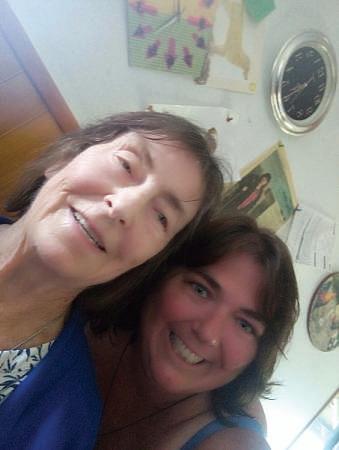
• support options to help siblings thrive in their unique family environment. Our SibSupport programmes are run by SibLeaders who have grown up attending SibSupport and have been trained to facilitate for the next generation. The ‘by-siblings-for-siblings’ environment creates a supportive, judgement-free space to explore all the aspects of growing up with a disabled brother or sister.

Thingsbecame moreapparentwhen Unawouldget halfway througha sentence andforget what she wastalkingaboutso ok he he doctorwhereshe was 72,withAlzheimer ’s entually Una went to livewith Gayeandherhusbandand sons at uralhome,ina purposebuilthouseontheirland. wasstillworking then,” saysGaye,whose roleshave iouslyinvolvedadmin, unting and payroll.
“However,itbecame really apparentthattherewasno way ork. Igave upmyjoband becamefulltime carerfor mum.”
Our services focus on the wellbeing of the whānau as a whole and address individual needs within the family context. This includes disabled people, their parents, caregivers, siblings, grandparents, etc. We are committed to providing

Gayedescribesthe followingthreeyearsas an“isolatingjourney”.
services that align with the Enabling Good Lives principles. Visit our website to learn more and to register for a free and confidential service.
Don Martin is the Regional Coordinator for Northland, based in Ōkaihau. This central location is perfect for providing services to the whole of the Northland region.
“Everyone’s journeyisdifferentbutit’savery isolatingjourneytogoonfor acarer.Some daysyoudon’t even getto have ashoweror doanything foryourselfasitisjustfull-on.But, evenif IhadknownwhatIwas about togo throughfromthe start,Istillwouldhavedoneit asmymum wasamazingandit wasaprivilege to lookafterherinherlateryears.Andwedid havefun at times –we’dhavelots oflaughs withher.”
Other support services include:
UnalivedwithGayeandher family forthree years,spendingherfinalmonthsinfulltime care,beforeshe passedawayin Februar ythis year,aged76.
Altogether Autism: providing autismspecific, evidence-based information Care Matters: web-based resources and a freephone service for family carers. Many of our workshops are funded by Care Matters.
Gaye,meanwhile,hadbegunasa communityadvisorwithAlzheimer ’s Northland to help other familiesonsimilarjourneys
“I’dbeenthroughthepracticalsideso can empathisewiththem,”saysGaye,addingthat shehasalso partakeninmanytraining courses.
The Wilson Home Trust: providing grants to families with children with physical disabilities aged 0-21. Don is the local Far North representative.
“A lotofmyclientsare husbandandwifeand Iknowit’sdifficult forthemasthey’rewatching theirlifepartner fadeaway.Iknowit wasmy mumbutshe wasthewoman Irespectedthe mostinlifeand Iwatchedmymum fadeaway forfiveyears.Wewerereallyclose,I’ve got somany goodmemoriesofmumso Itry and focusonthose.
Don Martin - Regional Coordinator
Mobile 027 808 3942
Freephone 0508 236 236
Email northland@parent2parent.org.nz
“Ilovemyjoband Ilikehelpingpeople –I’m probably abitlikemumlikethat–soIcansee myselfbeingherefor awhile.It’sprobablymy foreverjobnow.
Website www.parent2parent.org.nz Facebook www.facebook.com/ parenttoparentnorthland

Iused to feel very isolated, and this isolation was formed from the understanding that my sibling was different. This meant different rules, different ways of life, and a different perspective on the world.
I didn’t have anyone to relate to who lived in similar circumstances. No one understood. So, from a very young age, I thought I had to understand on my own.
That was until my first journey on the R. Tucker Thompson Sailing Ship for a SibVoyage with Parent to Parent. Parent to Parent is an organisation that helped provide my family with clarity, and provided me with friendships I will cherish for a lifetime. My first journey was nervewracking, and to be quite honest, I was reluctant to go. I had this overwhelming fear I was being sent on a “therapy tour” and almost refused to leave the house.
But those days on the boat were days I will never forget, and I’m so glad I didn’t miss them through the fear of leaving home. During the week, I developed strong bonds with the other siblings. That gave me clarity and I believe I provided it to them in return. We all discussed how our lives were, the good and the bad, and how it is to grow up with siblings who are different.
When I left that journey, I remained in contact with everyone, and I still am to this day.

In the two years following, I viewed my life in a different light, and I believe I developed a more positive mindset. I became more eager to try new things and to educate those who do not understand my circumstances.
On the second SibVoyage with R. Tucker Thompson and Parent to Parent, I was more concentrated on helping those who were trapped in the very lonely state I had been in on my first journey just two years ago. I hope I provided them with the comfort I was given a new perspective on their home situation.

On both of those trips, everyone was so different—with their own frustrations and desires—yet we lived and thrived perfectly because we all understood that we were struggling, but we were not alone because we had one another.
From these experiences, I not only discovered clarity but also a new way of thinking.
I grew the understanding that outsiders may view my and others’ lives as a curse. They might assume my sibling is a burden, yet they will not understand how wrong they are. I would never change my brother, and for many reasons, I thank him.
Without him, I wouldn’t be able to be where I am now and have these irreplaceable friendships.
He is the reason I do not isolate myself from those who are different, and he is the reason I am so open to others. I am grateful for him, truly. However, I not only thank him but also Parent to Parent. This entire organisation has supported me on my journey. They have helped me more than they could comprehend.
Through the SibVoyage experiences, I have transformed my isolation into a community of people who all once thought they were trapped alone.
Gabriella Crabb.
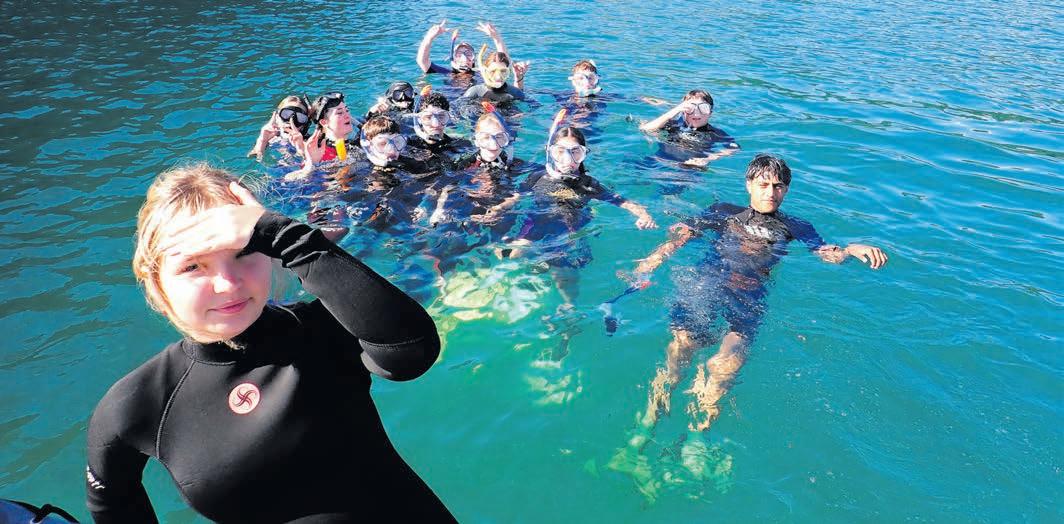
PAllenSmithmayhave relinquished his competitivelevel of table tennis but,almost30yearsafterdeveloping Parkinson’s Disease,he canstillholdhisown.
arkinson’s is now the fastest growing neurological condition in the world with nearly 12,000 New Zealanders diagnosed. The average age of onset is only 59 years old.
The key, hesays,isinthemindset.
The67-year-oldbegannoticingsymptoms inhislate 30s/early40sbutit wasarounda decadelaterthathewasdiagnosed.
“Iexperiencedtightmuscles,loss ofsenseof smellandtirednessbutalwaysputitdown to somethingelse,”saysthe fatherofthree who wasactivein table tennisand kayaking.
Parkinson’s is a progressive neurodegenerative condition caused by insufficient quantities of dopamine - a chemical in the brain. When dopamine levels fall, movements become slow and awkward.
He attributedthetightmusclestooveruse, temporarily relievedby regularmassages. However,heoftennoticed astrangescent,a now-recognisedcommon earlysymptom.
“Iwouldask my wife,‘Issomethingburning?’ andshewouldlook at me strange.”
The most common physical symptoms are tremor, stiffness, rigidity and slowness of movement. Other symptoms include depression, anxiety or apathy, disturbance of normal sleep, constipation, and trouble swallowing or speaking.
Although there is no cure, treatment is available.
Charitable Trust
His conditiondeterioratedamidfrequent doctorvisitsuntilhisleft arm ceased functioningwhileusingthe computer forhis managerial role. Furtherinvestigationsfinally led to aresultover ayearlaterturningup Parkinson’s and “itallmadesense”.
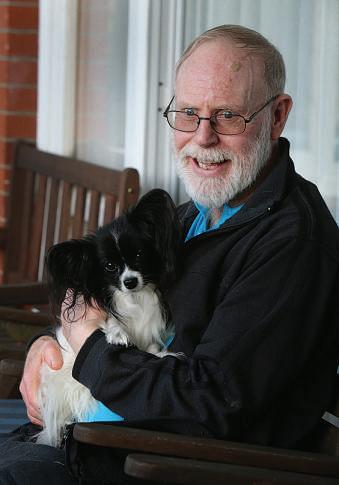
Withtheaverage ageofParkinson’s diagnosed at 59,Allen’s wascalled ‘earlyonset’.
We are here to help. Parkinson’s New Zealand Charitable Trust provides high quality information, education and support for all people with Parkinson’s and Parkinson’s Plus conditions living in Aotearoa New Zealand.
“It’s notuncommonthese days,think MichaelJ.Fox.There’snofamilyhistory,it wasout ofthe blue.Havingsaidthat, both my wife’ssisterandherhusband andmy neighbourhaveitsoit’sbecoming more common.”
This year Parkinson’s New Zealand is supporting 379 people who have been diagnosed with Parkinson’s or are carepartners in Northland.
Allen’s symptomsincludeshaking,tight musclesandloss of movement.Healsohas
Parkinson’s Educators provide both personalised and group support for whānau
severalnon-motorsymptoms,adding to the dailychallenge.
“Then youstart taking dopamine replacements, evenknowingthereisa high chance,astimegoeson,that thiswill cause symptomsoftwistingand contortingofthe body,whichyouthenhave to treatwith anothermedicationandit’sabitof asnowball.”

However,adefiningmomentinAllen’s attitude andsubsequentabilitiesoccurred earlyon.
living with Parkinson’s. Our charitable service include home visits, support groups, educational seminars, advocacy and
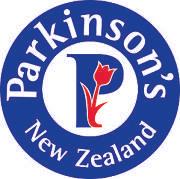


whānau meetings as well as referrals to other health professionals. Our Parkinson’s Educators provide answers to any questions you or your whānau may have on the condition including medication, treatment and support available.
“When Iwas diagnosed, IthoughtI’d have to giveup table tennis.Iwent to theNorth Shore Table TennisCentreandsaid to theguy,‘I’ve got Parkinson’s,I’llhave to giveitup’, andhe said, ‘Why?’. Igot back to the carandthought, ‘Yeah,whyshould Ihave to giveit up?’
There are various activities available in Northland including social and exercise groups These can include activities such as walking, hydrotherapy, physiotherapy, voice and movement classes, Tai Chi or Counterpunch groups.
Notgiving upbecame his mantra. He continuedplayinghis beloved sport and says,until recently, he wasstilla contender Whilehe’sonlyrecently,reluctantly givenup entering competitions,he stillplays at hisclub twiceweekly.
“Looking back,thethingthat’simportant isnottomakeradicalchangesjustbecause you’re given adiagnosis. By (Parkinson’s) nature,itis progressivesoit’simportant to put thattoonesideand justenjoywhatyou do.Do whatyou can,whileyou can.”
Parkinson’s New Zealand is available for information, education and support for whānau living with Parkinson’s in Northland. If you or someone you know has been diagnosed with Parkinson’s you can get support by registering with us online via our website www.parkinsons.org.nz or calling 0800 473 4636.
Parkinson’s New Zealand charitable trust is reliant on funding from grants, bequests, and donations.
Depressionisalsoaffiliatedwith Parkinson’s and Allen recommends goodnutrition,exercise andsunshine. Parkinson’s NewZealand offers arangeofexerciseclasses andAllen had just attendedhisfirstgroup movementclassand comeaway feelinginvigorated.
Parkinson’s New Zealand
Free phone: 0800 473 4636
Whenaskedifhis conditioneffects his cognitiveabilities,Allen,who stilldrives, says with achucklethathestill partakesin regular quizzeswithhiswifeand gets his fairshareof answers correct.
Email info@parkinsons.org.nz
Website www.parkinsons.org.nz

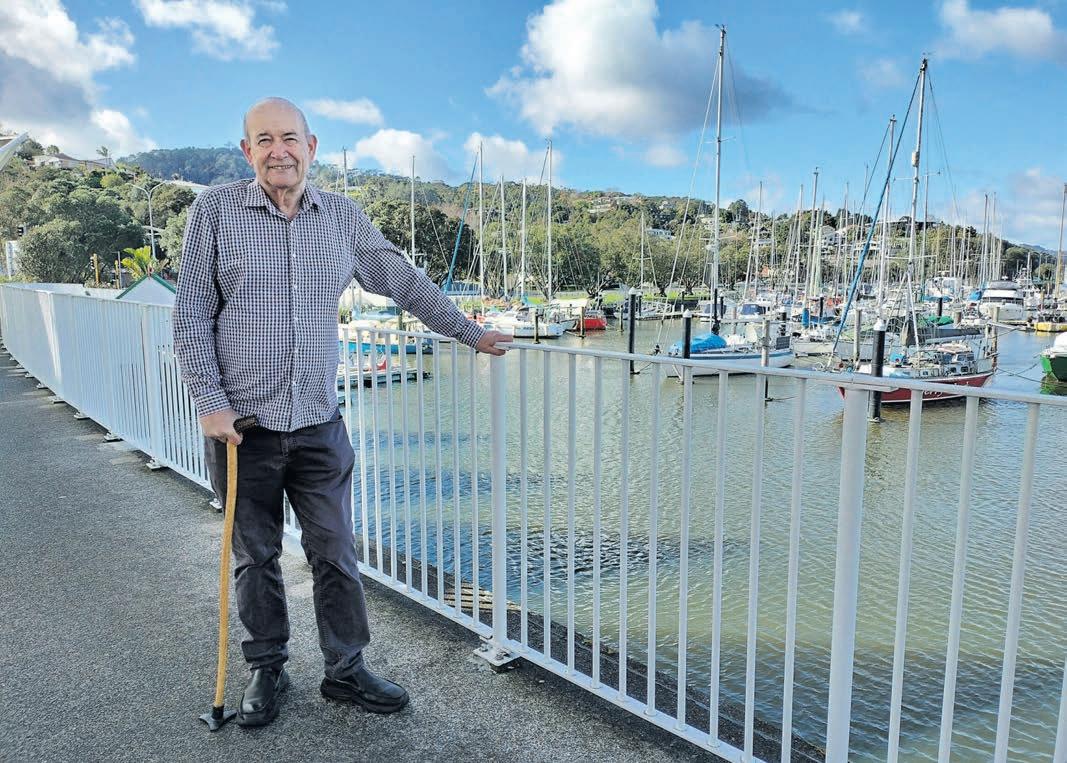
Afence at the top of the cliff attitude, has helped Peter Garelja’s 16-year Parkinson’s journey go smoother.
“I try to avoid stress as that is a major issue for people with Parkinson’s,” he explains. “I have my watch set five minutes in advance so I’m never rushing to get places and my punctuality is really good. I don’t have shoes with laces on and I wear zip-up jackets. I try to have a little nap every afternoon. If I can manage myself, I can reduce a lot of the effects.”
The former secondary school Principal was diagnosed in 2008, aged 54, still at the height of his career at Tikipunga High School after moving north from Auckland. He continued another six years until having to retire earlier than planned.
“When I first got told, I told my family and we sat on that for a few months. I told my work and then I told my whole school because I figured that’s an educated thing
I could do and I felt liberated by that as there are quite a few misconceptions about Parkinson’s.”
One of those misconceptions is the tremor – Peter, 71, only developed a tremor over the last couple of years. His first symptom came when he collapsed in a fancy restaurant. An ambulance was called and he was taken to the stroke ward while a process of elimination was carried out before Parkinson’s was diagnosed. Tiredness was the second symptom, then his walking gait changed with his right arm swinging oddly.
“I was still playing a fairly high level of tennis before I was diagnosed. I had a big serve but I said to my wife, my serve is not what it used to be and she said, ‘Don’t be silly, you’re just getting old’, but I knew it wasn’t right.”
He and wife Raewyn moved to Glinks Gully, which he cites as being pivotal in his therapy.
“Northland’s been part of my reason for why I’ve done really well. It’s a slow lifestyle and slowness forces you to reflect and to take time and smell the roses.
“The thing with Parkinson’s is everything is slow, you can’t do things quickly anymore. You can’t get frustrated so embrace it. I used to live by this Neil Young song: ‘It’s better to burn out than fade away’, well, I don’t think I believe in that now. I was a high-flyer but there’s a price you pay along the way.”
Though he now uses a walking stick, Peter is still driving himself. After retiring, he starting carrying out charitable work and is part of the Rotary Club and chairman of Parkinson’s Northland.
“Helping others is one of the main things you can do for your health. No matter the hand you are dealt, you just find a way to play your cards well.”
The Stroke Foundation of New Zealand is the national organisation dedicated to stroke prevention and recovery. Our mission is simple: to prevent stroke, improve outcomes for stroke survivors and their whānau, and save lives.
We have developed a new way of delivering services throughout Aotearoa, changing from delivering one-to-one support to stroke survivors to a one-to-many service. We are focusing on collaboration and facilitation of community education, support groups, education seminars, and new stroke-specific support services.
Our new Community Stroke Navigators (Kaiārahi) are responsible for developing partnerships and stroke education programmes in communities, providing advocacy support, building awareness of our services, and delivering face-to-face support when needed to people and their whānau affected by stroke.
We have also launched a new helpline: 0800 STROKE (0800 787653). This helpline is for anyone affected by stroke, including whānau and caregivers. It is staffed by our Community Stroke Navigators who can provide stroke information, practical guidance, service navigation, referrals to services including stroke support groups, clubs and community organisations, and other life after stroke support.



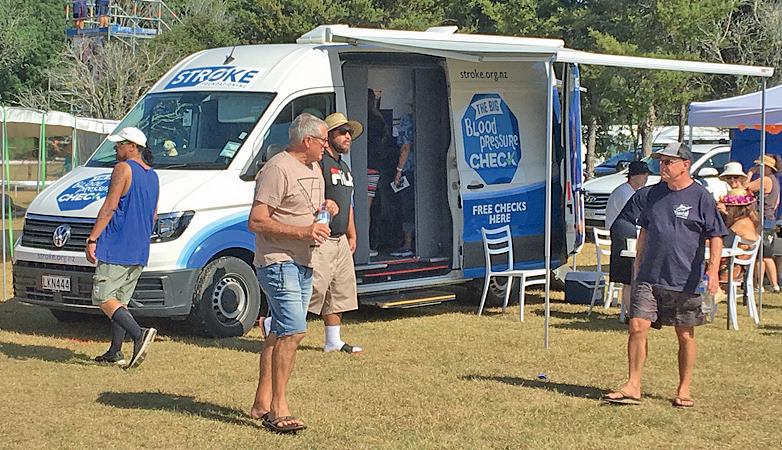
We are dedicated to working closely with stroke survivors and whānau to implement practical solutions for both stroke prevention and support after stroke. We hold hui and wānanga based around what people want to learn about, offering information that is useful and practical. These sessions are advertised on our Facebook page and through our contacts from local iwi and Māori providers.
These sessions are producing real
change. In response to hearing from whānau who have indicated that people in the health sector need to know more about stroke, we are providing stroke education for kaimahi and kaiāwhina in Kaitaia, Kaikohe, and Whangārei.
0800 STROKE (0800 787653)
help@stroke.org.nz Web: facebook.com/StrokeFoundationNZ
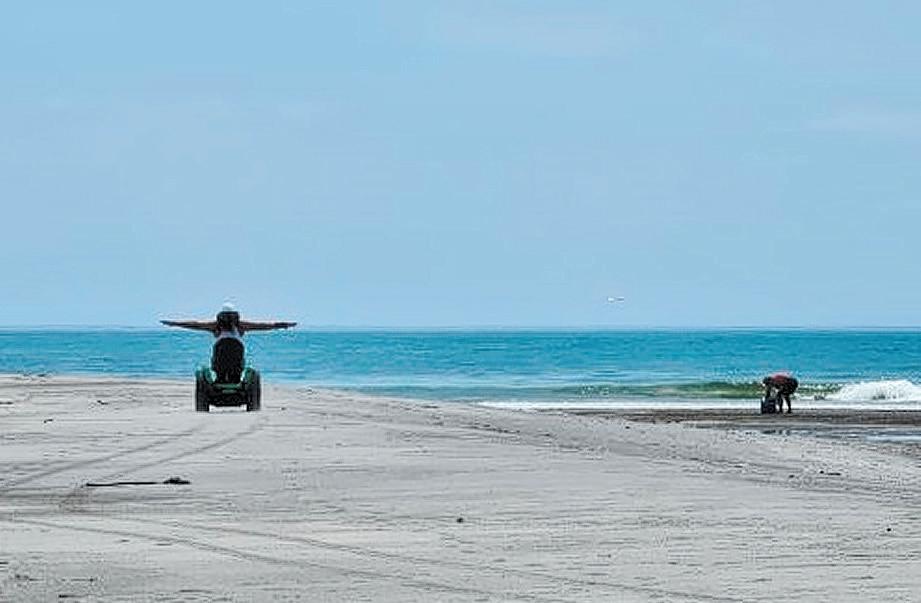

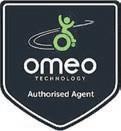
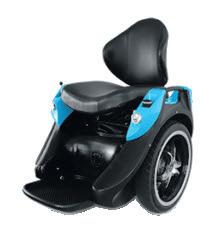
When Johnny and partner Lizzie headed out for a bite to eat, they couldn’t possibly have imagined how the day would unfold.
The Kerikeri couple were sitting outside the eatery waiting for their food to arrive when Johnny started to feel unwell.
“I was sitting there with my hand on my head, just having a slight headache. And my speech was slightly slurred. I was trying to think through the whole situation, as to how well I was talking. I told my partner after a little bit ‘I am just going to go down to the ground; don’t worry about it. Don’t be alarmed.’ I felt like I was going to faint. So, I went down, then tried to get myself up but I knew my balance was out.” He was helped to the car, and the pair immediately headed to hospital. Johnny started to doze off, but Lizzie told him “Don’t fall asleep!”. She was aware of the F.A.S.T. mnemonic to help recognise the signs of stroke - Face drooping, Arm weakness, Speech difficulty, Take action & call 111 - all thanks to having seen the F.A.S.T. fridge magnets and her work caring for elderly stroke survivors. Johnny replied “Why? Is it one of those?” “Yes” she confirmed. “It’s one of those.” Unfortunately, what followed was a misdiagnosis that meant the couple was losing precious time. At the hospital, they were told Johnny was too young for it to be a stroke; it must be vertigo.

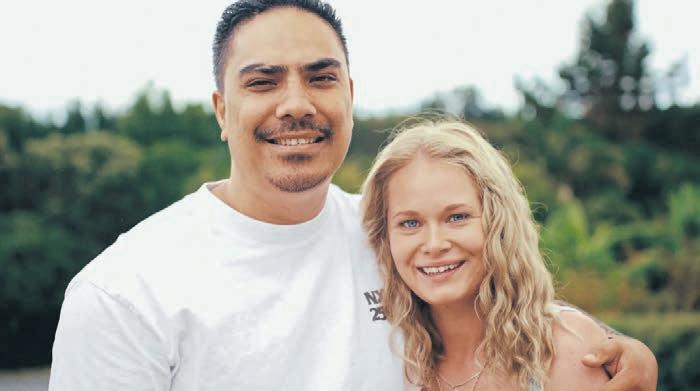
The couple were sent home. Lizzie wasn’t sure Johnny was ‘fine’, as the doctor had assured them. But then she told herself, “I’m not a doctor - let it go.”
However, by the next day Johnny’s situation hadn’t improved. So, with the help of the wider family, the couple made the 90-minute car trip to Whangārei hospital. When they arrived, Johnny felt ‘massive relief.’
“There was a lady who had come out with a wheelchair, and as she saw me, she freaked out and was like ‘Sorry I can’t push you!’
And I was like ‘No, no - it’s alright.’ And that’s the last thing I remember.”
Johnny was eventually diagnosed with a cerebellar infarct (or cerebellar stroke) - a
type of stroke that impacts the back of the brain. Outcomes include reduced oxygen delivery, which results in loss of motor and balance control.
He was admitted to Whangārei hospital on 21 January 2023 and transferred to Auckland hospital for neurosurgery. He was transferred back to Whangārei and was discharged two weeks later.
Johnny is now in Lizzie’s full-time care. The outcome could have been even worse had Lizzie not recognised the signs of stroke from the outset. She says the importance of swift action can’t be underestimated.
“The biggest thing was time. Time, time, time. You’ve got to get it sorted.”
Just go for it!

We want you to succeed, so we offer everything we can to help you on your way. Our Student Support Services and Student Voice teams work together to provide support for you through your entire learning journey from enrollment all the way through to graduation and beyond. If something is holding you back from enrolling in study, or if you need support to achieve your goals, our team is there to help.
Whether your needs are physical, neurological, emotional, or health dependent, we can help make learning work for you. Our services are on offer at any point of your study journey.
We offer in-house academic support where we help you plan your studies, seek extensions or extra attention from tutors, navigate your options with Kaiako (tutors), and can even facilitate testing for learning disabilities.
We work with you to ensure your needs are met and cater all help to the individual.
We can also provide financial support, by giving advice where needed and connecting students to funds, such as the Hardship Fund for Learners (HAFL), which supplies funds for necessities like housing, food, clothing, and more.
At NorthTec we understand how important your support systems are. With us, you can gain the qualifications you need to get the career you want without leaving your friends, family, or support networks behind by studying right here in Te Tai Tokerau Northland. With options for online, part-time, and even paper-by-paper study, we can help tailor your learning journey to your needs and capabilities.
Still not sure? Pastoral care is a priority, we have an on-campus Health Care Centre at our Raumanga campus that offers medical aid and advice, as well as internal
So go for it! Enrol now to study with NorthTec in 2025 and get the support you need.
counselling services, working with learners for the best options for them and giving you a place to turn for support while on campus.
We have dedicated student navigators who deliver a tikanga-based model, applying knowledge and understanding of Reo Māori & Māori tikanga in day-to-day practice and supporting your spiritual and cultural needs. They also help connect ākonga to their tutors, services, and systems and are often the first point of call when you need some help or guidance.
Our teams work around the clock to email, call, text, and Zoom ākonga to touch base, offer help, set up support and funding, and otherwise support our learners every step of the way.
NorthTec
Freephone: 0800 162 100
Web: www.northtec.ac.nz
HOURS: 8.00am-4.30pm Mon - Thurs 8.00am-4.00pm Fri
“In the future, I want to work with people with disabilities, especially people of Māori and Pasifica descent as that’s my passion.”
Georgina Wellington (Māori/ Niuean) is in her third year of the Bachelor of Applied Social Work at NorthTec. She also has dyslexia.
“I think even from primary school I knew. I knew my brain worked differently,” she admits. “But I didn’t know for sure until I did the testing. The academic team was able to tell me what was wrong and give me strategies to help me with my studies.”
Georgina contacted NorthTec’s academic support team to see what was available for her and was able to get not only a diagnosis but continual support throughout her studies.
“It’s not a one-off, they help me understand assignments, give me strategies to plan out essays, and study for exams. They help me find ways to stay on task and work to deadlines. I never would have made it this far without the support offered by NorthTec,” says Georgina.
“I probably would have dropped out in the first 6 months.

The team was just so helpful.”
“They offer support for everyone if you have a learning disability, like dyslexia or autism, or even just if you need general help because you have studied in a while.”
Georgina doesn’t know exactly what she
will do with her career post-graduation, but she has plans to help others like herself.
“There’s so much need out there, in tertiary education yes, but also in primary schools and high schools. Who knows where I’ll go.”
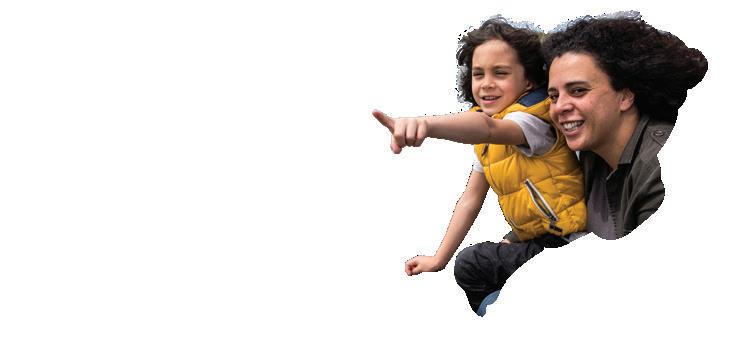
The Papermill is all about “Print” in 2024! The talented Papermakers are diving into different print techniques to create amazing artwork on handmade paper. They’ve already shown off their skills at ArtBeat, Whangārei’s big arts festival, where they loved sharing their craft with everyone. Print techniques were also used in entries for the IHC Art Awards - annual awards that Papermakers are encouraged and supported to enter.
The Papermill’s popular handmade greeting cards also feature unique print designs, each one showing off the personal style of the Papermaker who made it. As we move into the second half of the year, the artists are gearing up to create individual pieces for the annual exhibition, and yes, these will feature some fantastic print work!
In the papermaking studio, it’s the usual creative buzz. Everyone’s working on their own personal projects, whether it’s dyeing paper with natural dyes like avocado or making tiled paper from different coloured pulps. There’s never a shortage of Imagination and experimentation!
More about The Papermill
Founded in 1989 by Rhonda RutherfordDunn, The Papermill has long been a sanctuary for artistic expression and personal growth for individuals with intellectual disabilities.
Rhonda’s innovative vision established papermaking as a therapeutic medium, empowering participants to build selfesteem and confidence. Today, over 34 years later, The Papermill continues to thrive, fostering a nurturing environment
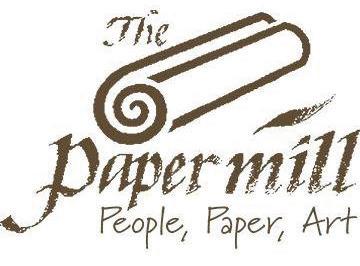
where creativity flourishes, and artwork comes to life.

The Papermill operates as a unique creative space and a small business, following a structured and routinebased philosophy. This approach fosters a strong team environment where everyone’s contribution is valued and each individual’s uniqueness is celebrated. The Papermill’s tag line ‘People, Paper, Art’ perfectly encapsulates priorities.
Visitors to The Papermill can purchase paper, stationery, and paper art, tour the studios, and interact with the artists at work. Papermaking workshops are available on demand, and group visit bookings are recommended.
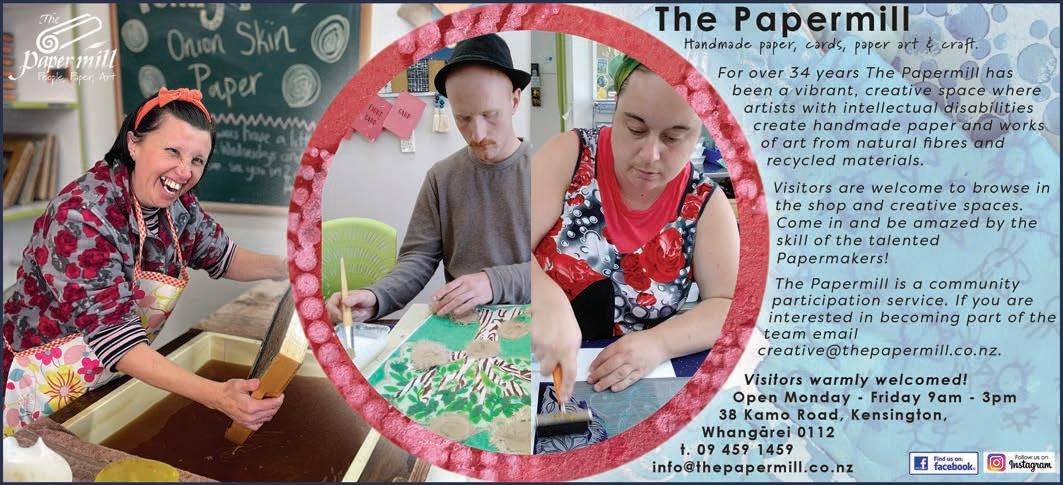
The Northland Disabled Charitable Trust is a non- profit organisation and has been operating the Forget Me Not Adult Day Centre in Tikipunga, Whangarei since 1994. The Centre is a day care service and is available to adults of all ages including those who are young with disabilities, the elderly and frail, those with memory loss, head injuries and/ or other disabilities.
The Centre provides quality day care that enhances the welfare not only of the clients but also of the carers and families who look after their loved ones at home on a 24 hour a day basis.
The Centre has capacity for 40 client visits per day. The Staff are qualified in their respective fields, and are experienced and
caring. Entry criteria is based on you visiting and having a look around to decide if you would like to attend.
There is no huge protocols for attendance other than enjoying and benefiting from attending.
The programme is structured with a variety of activities that provide motivation, education, rehabilitation and fun.
A cooked lunch is provided daily for clients and ‘take home’ meals service is available for clients who require an evening meal. Clients are transported to and from the Centre by the Trust vans.
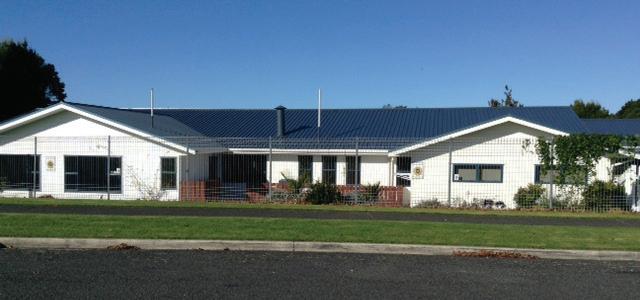


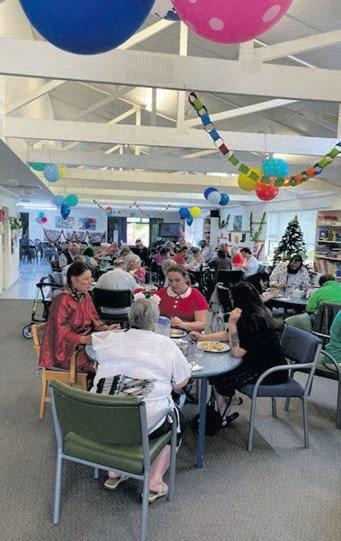
Forget Me Not 110 Boundary Road, Tikipunga WHANGAREI 0112
Phone: 09 4371144 manager@forgetmenot.org.nz www.adultdaycentre.co.nz
To achieve the best quality service to our community the Trust relies heavily on philanthropic funding and sponsorship to keep the service sustainable. At Tikipunga we specialize in all mechanical repairs including; transmissions & general services, WOF, brake and clutch repairs as well as tires. We have the latest technology and diagnostic equipment to diagnose problems in all Japanese and European cars. Come in and see our friendly staff at Tikipunga Automotive today. Here at Tikipunga Automotive, we are dedicated to treating our customers with honesty, respect, and professionalism. We hope that you find what you’re looking for on our website, but please don’t hesitate to contact us, should you require more information, or to book your car in.
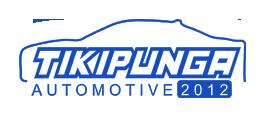
At Spectrum Care, ours is no ordinary job. Many of our customers are non-verbal, but they have plenty to say if you know how to listen. More than a few have substantial physical challenges to meet.
Many of the families we work with have been tested to the limits before we even meet them. Their strength, their resilience and their love for the worthy and they are of immense value. In our books, to not see this is the true disadvantage.
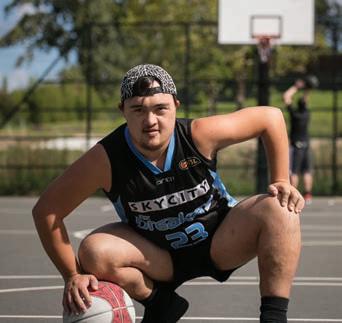
For many of us, it’s a given. But for thousands of New Zealanders living with disability, it’s something that can only be achieved with support. Contact us
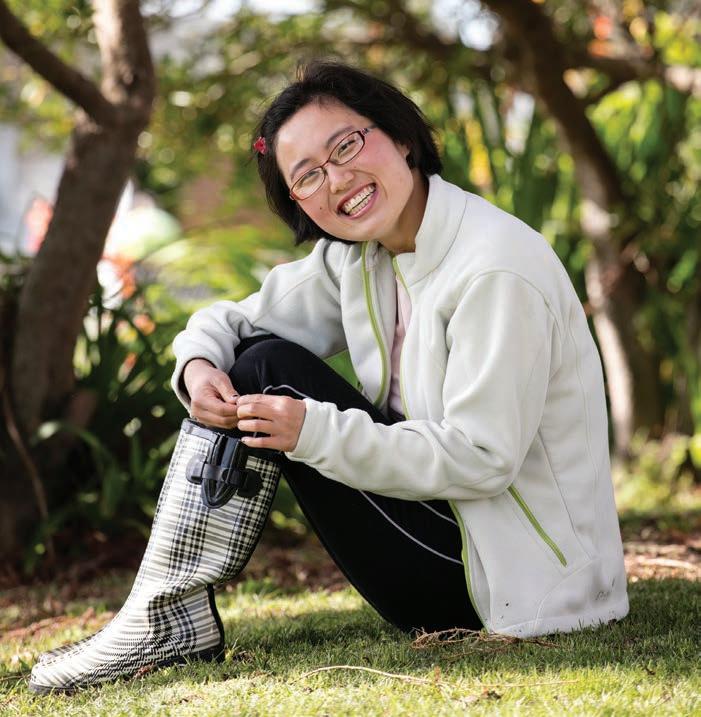

Our Vision
Every person with a disability deserves a life of choice, freedom and independence.
Our Purpose
To help maximise the potential of the people we support.
Our Promise
Wholehearted optimism, every day.
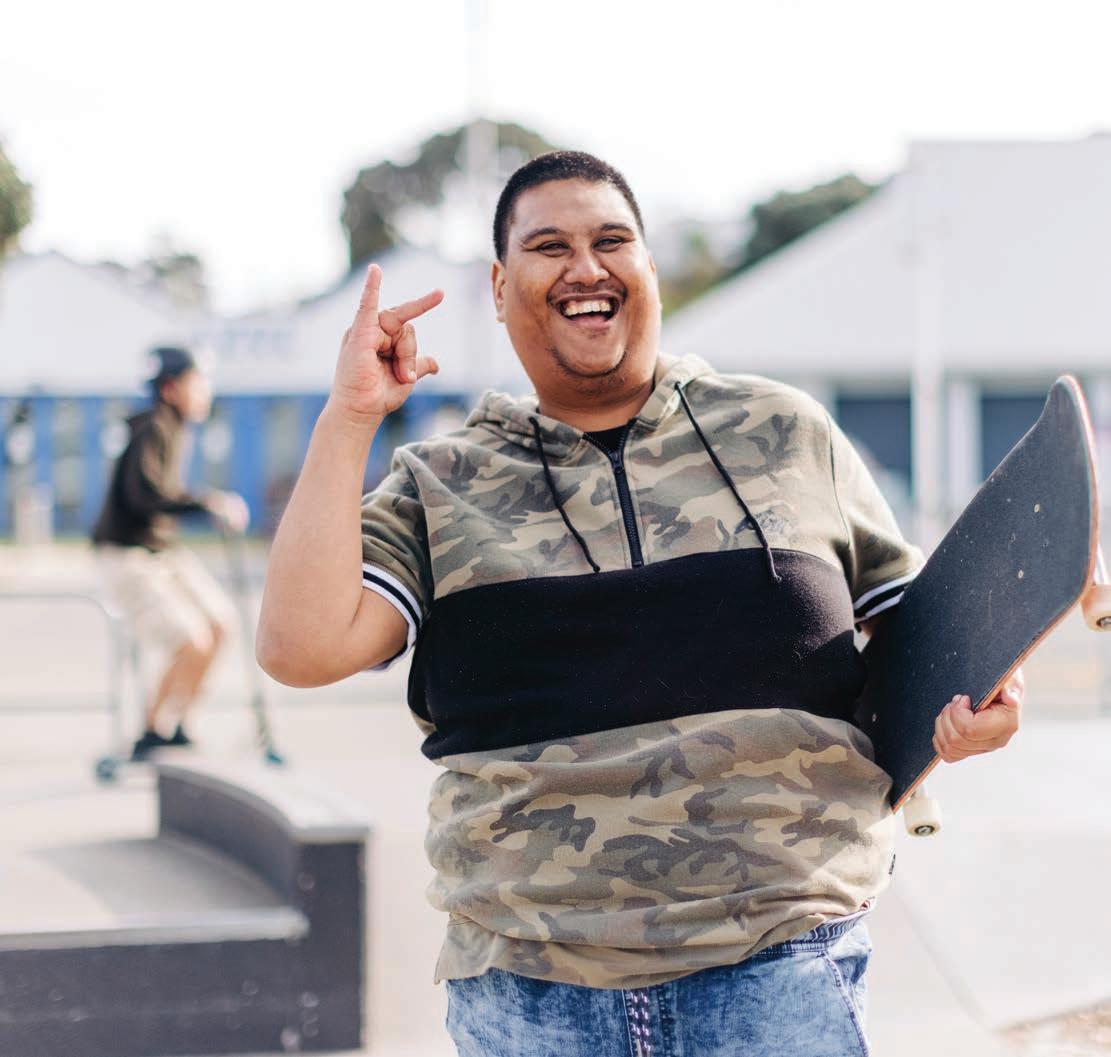
We offer a wide array of flexible support options in the Northland, Auckland, Waikato, Bay of Plenty and Wellington regions, which can be structured to suit each family’s unique needs.
Our aim is to ensure people have choice, control and flexibility in the supports they receive and have the opportunity to co-create their own support options. We also offer a navigator service 0508 NAVIG8 aimed at helping families new to disability support.
Contact us today to find out more spectrumcare.org.nz info@spectrumcare.org.nz 09 634 3790 | 0508 NAVIG8 (0508 628 448)
At tlc4u2, our mission, “Together We Care” reflects our commitment to fostering a collaborative and compassionate approach to in-home support. Working together with clients, whānau, and healthcare providers, enables us to provide optimal quality care. At tlc4u2, we understand the unique needs of our community, offering a wide range of support services throughout the Northland and Auckland region. Whether you require minimal assistance or aroundthe-clock care, our dedicated team of support workers are here to help. Services can be accessed privately, as well as funded through ACC and Te Whatu Ora.
• E xperienced and Compassionate Team: Our support workers are highly trained and passionate about delivering the best care possible.
• C ommunity Focus: As a local provider, we are deeply committed to the wellbeing of our community, ensuring our clients receive the highest standard of care. tlc4u2 are also committed to supporting inclusive and accessible opportunities throughout the community and advocating for better accessible spaces and places.

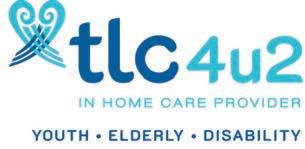
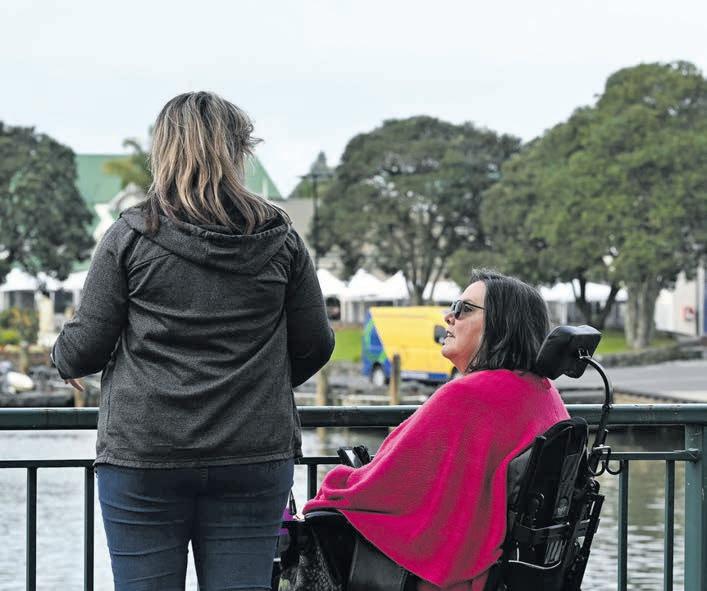
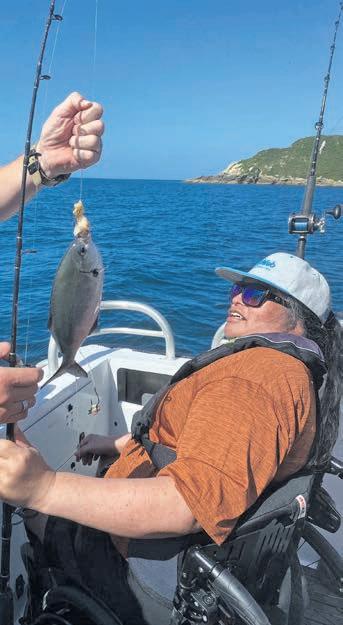
Looking for In-Home Care from people that truly care - Contact Us Today
If you or a loved one are in need of in-home support, tlc4u2 is here to help. Contact us today to learn more about our services and how we can assist you with the quality care you deserve. Visit our website or call us to schedule a consultation and discover the tlc4u2 difference.
tlc4u2 – Your Trusted Partner in Care.
Contact details: 0800 852 482 www.tlc4u2.co.nz

Located in the picturesque coastal suburb of Auckland, tlc4u2 Beachlands Resort offers accessible holiday, short stay and/or temporary accommodation options in a modern, spacious and peaceful setting. The Resort features ten fully accessible bedrooms, which provide our guests and their whānau with specific spaces that are tailored to meet the needs.
This ensures that guests have the flexibility to create the type of stay and level of support that works for them. We have qualified support staff who can assist you with all your individualised care needs, should that be required.
Whether you are needing a space to recover, accommodation while your housing modification is taking place or looking to have a weekend getaway.
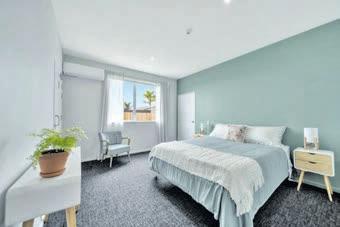
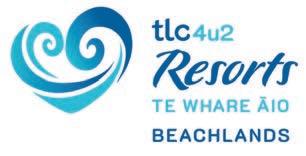
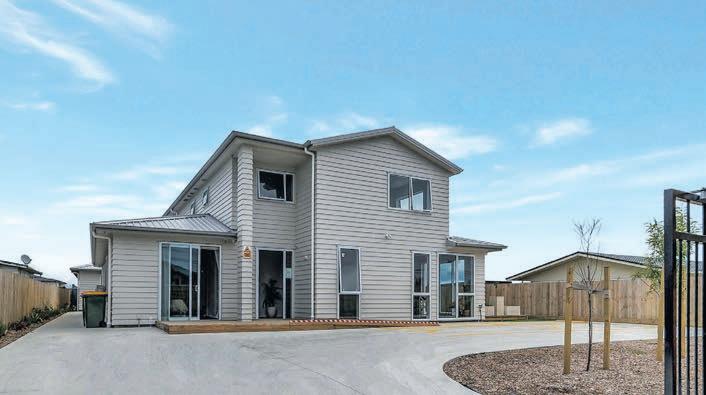
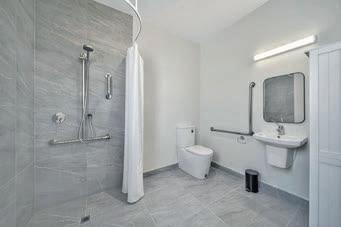
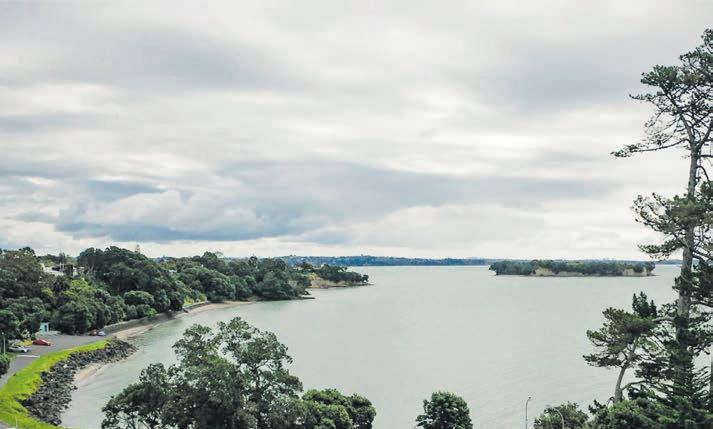
S et in the serene environment of Beachlands, our Resort is just a stone’s throw away from beautiful seaside walkways and accessible ferry services to downtown Auckland. The local area is bustling with cafes and restaurants, providing plenty of options for exploring.
Looking for a peaceful getaway that is fully accessible and can be tailored to you? Contact tlc4u2 Resorts Beachlands and discover how we can provide you with the ultimate accessible getaway. Visit our website or call us to arrange your stay.
tlc4u2 Resorts Beachlands – Where care meets comfort.
Contact details: 0800 852 737 stay@tlc4u2resorts.co.nz www.tlc4u2resorts.co.nz

“Standing on the shoulders of giants”*
Recently we at Special Olympics Whangarei, (sporting opportunities for persons with an intellectual impairment), held our annual Social and Awards evening.
I was setting up the stand of trophies, and looking at, not only those who would receive them, but the dozens of past recipients listed, whose example of determination to overcome the obstacle of impairment and reliance on others, have spurred our people on. Our athletes today truly, as Isaac Newton in the quote above said, stand on the shoulders of giants –athletes from the past who’ve set such a great example.
Special Olympics is not just a multi sporting club, ( athletics, basketball, bocce, foot-ball, indoor bowls, swimming and tenpin bowling). We provide chances for our people to socialise and to grow in
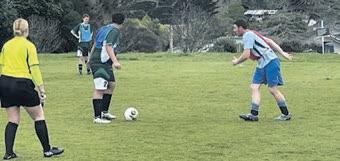
confidence to take on the world.
We have around 60 athletes in Dargaville and here in Whangarei and a handful of willing volunteers who coach, and assist our people.
However, like every other voluntary organisation, we really could do with some assistance so if you’re at a loose end, and have a couple o hour a week to spare …..?
David Laird Club Coordinator Special Olympics Whangarei







Sporting and recreation opportunities for persons with an Intellectual impairment
We are multisport athletics: equestrian, football, indoor bowls, swimming and tenpin bowling
Athletes from 8 to 80 years old
Developing self esteem — encouraging initiative
Activities developed by the athletes, for the athletes
Special Olympics Whangarei
For all enquires contact Martin Barrie Phone: 021 118 2422 – Like us on Facebook.

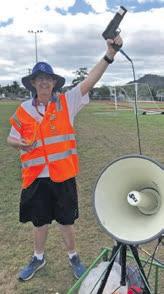
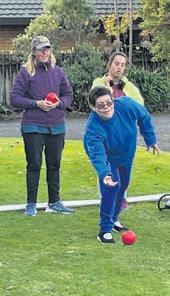
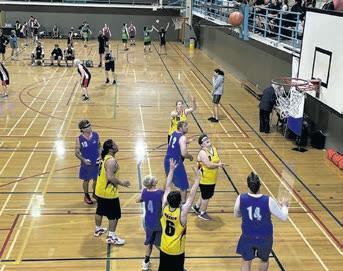
Finally, like many other organisations we’re short of volunteers. If you like getting together with special people, come and join us: Phone: 021 118 2422
loves working in the Community assisting people with disabilities
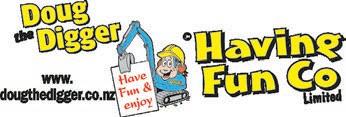
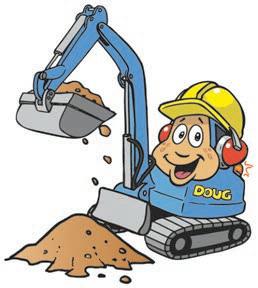

Travel can be a complex puzzle, especially for community groups and individuals with unique needs. At CS Travel, we understand that planning a trip goes beyond booking flights and accommodations—it’s about creating a seamless, stress-free experience tailored to every traveler’s requirements. Our team, brings empathy, expertise, and a can-do attitude to every travel plan, ensuring that no challenge is too great to overcome.
Within the team at CS Travel we have consultants who have first hand experience with para-athletes for Tokyo and Beijing, held amidst the peak of COVID-19 restrictions. Transporting a 71-member team with special equipment and ensuring their health and safety before travel, during and after, was a monumental task, made even more challenging by the snap national lockdowns and stringent travel regulations. Yet, obstacles were navigated with finesse, demonstrating that where there is a will, there is a way.
The success of this project was a testament to meticulous planning and unwavering commitment.
Daily communication with travel industry suppliers, government authorities, and the

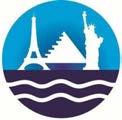

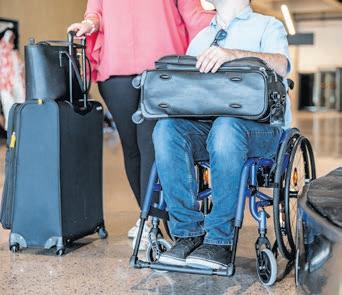
para-athletes ensured that every detail was covered. Scenario planning and contingency measures were key components, allowing the team to address any potential issues promptly and effectively.
Whether you’re planning a group trip for a sports team, a community event, or a special outing, CSTravel is here to support you every step of the way. We offer personalised travel solutions, ensuring that your journey is smooth and hassle-free. Our team’s expertise in handling complex travel arrangements and our commitment to inclusivity make us the ideal partner for your travel needs.

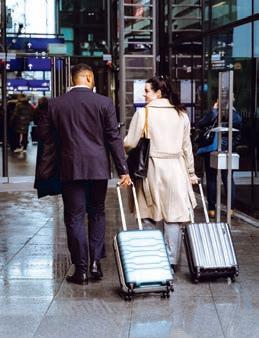
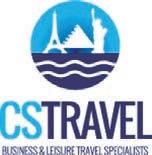
We have done work for community groups - kapa haka, Te Matatini, Waitangi Day groups, swimming teams, media and schools/kura.
At CS Travel, we thrive on challenges and each of us have 20+ years of passion within the industry.
Our mission is to make travel accessible, enjoyable, and inclusive for all.
We believe in creating opportunities for everyone to participate in and enjoy travel experiences, regardless of their circumstances.
We understand every single individual is unique and there’s an option for everyone. Airlines and airports are now also bringing out things like lanyards travellers can wear for individual needs that need care/hidden disabilities.
Given our expertise in all sorts of fields we can hand pick these to tailor a trip to anyone. We’re ready to get out there to Northland to share our extensive work with nationwide organisations.
We can even come to you!
Reach out to us today and discover how we can make your travel plans a reality.
With CSTravel, you’re not just booking a trip; you’re embarking on a journey with a team that cares.
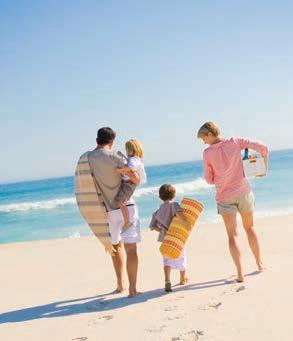



IDEA Services is New Zealand’s largest provider of services for people with intellectual disabilities and their families.
At IDEA Services we will support you to:
• Set goals and achieve them
• Have great experiences and take advantage of opportunities
• Have as much independence as possible balanced with the right support
• Make meaningful connections with others
• Live the life you want
Our Services
The specialist – and sometimes intensive
– support we provide for people with intellectual disabilities (including round-theclock care) can includes following services:
Supported Living
Through Supported Living we can support
you to:
• Manage and learn new daily living skills, such as cooking, cleaning and managing money
• Meet new people and make friends
• Keep in touch with family and friends
• Join community activities (e.g. sports and art)
• Look for a job
• Access other community services, such as the doctors or Work and Income
Living with support – Residential
We provide support for people with intellectual disabilities who require a level of care and want to live in a supportive community.
Support is based on what you need If you live with us you will:
• Have your own bedroom
• Live in a home you share with a few

others
• Be encouraged to take part in the running of your home and make decisions with others about what happens there
Specialist Services
IDEA Services provides supported accommodation for individuals who endure mental health issues alongside their disability.Services for people in compulsory care
IDEA Services profor people with high and complex needs who have committed an offence.


Residential and Supported Living Services – Enabling Good Lives
Our Team provide support to more than 50 people who live in our community or wanting to transition from home.We also provide support to more than 120 people in 29 residential homes across Northland. Support Workers walk alongside people to plan and set goals, to enable a great life.
At IDEA Services we are all about People. Throughout Te Tai Tokerau we employ more than 230 people to work alongside people that need our support.
If you love people and supporting people to reach their potential, then you should consider working with IDEA Services. Our Support workers are well supported with training and development opportunities that lead to a formal qualification. Contact us on careers.ihc.org.nz



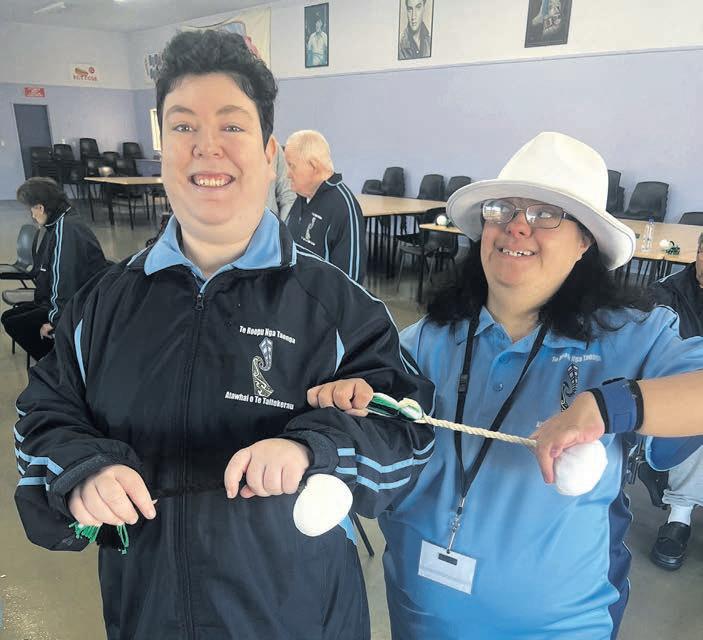
Keep the 14-15 November 2024 in your calendar – Te Anga Paua o Aotearoa National Kapa Haka Festival is on in Wellington. This is a festival celebrating kapa haka and kiritaki. Roopu from all Areas of Aotearoa will be attending. Te Roopu Nga Taonga Atawhai o Te Tai Tokerau
was established by Idea Services in 2016, performing at Regional Festivals since 2017 (excluding the covid years).
Nga Taonga Atawhai o Te Tai Tokerau will be attending in Wellington. 20 kiritaki (people we support) and 20 supporters will be travelling from Whangarei to Wellington,

representing Te Tai Tokerau. Staying two nights in Wellington, including a visit to Te Papa, Parliament and out to Petone where we are staying at the Top Ten Holiday Park.
Amelia Attwood (28) and Riwa Kingi (30) will be travelling with the group and both are excited; “this will be the first time on a plane for both of us.” Amelia started with the roopu a couple of years ago and has made her mark with her beautiful powerful voice. Jeff Voss (56) is counting down the days and lets everyone know that it is “only three more months”.
Ngahuia Pou (58), is from Terenga Paraoa Marae here in Whangarei with connections to Ngāti Wai, Ngāti Hine, Ngāti Whatua and Ngāpuhi. The poi is Ngahuia’ s favourite item and has on more than one occasion wowed the crowd with her ability to swing the long poi. Whānau from Whangarei are coming to Pōneke to watch Ngahuia and the roopu in November.
A huge acknowledgement needs to go to the Supporters, tutors, and advocates of our Roopu, and to Whangarei Rock and Roll Club, where we have our weekly practice.
Next year on 15 October 2025, Idea Services Northland is holding the Northern Regional Kapa Haka Festival here in Whangarei at Forum North. All roopu with kiritaki from Te Tai Tokerau will be invited to perform. It is our turn in Te Tai Tokerau to shine in 2025.
If you need more information about the 2025 Kapa Haka Festival, please contact Sally Hume 0272238335 or email sally. hume@idea.org.nz.

Located in the heart of Northland, Dynamic Healthcare is a familyowned business dedicated to providing top-notch mobility and rehab equipment. With over 40 years of combined industry experience, our team is passionate about delivering solutions that make a real difference in your daily life.
1. Expertise You Can Trust
Our extensive experience means we understand the unique challenges faced by individuals requiring mobility and rehabilitation equipment. Whether you’re seeking a simple solution like a shower chair or something more complex, our knowledgeable team is here to guide you every step of the way.
2. Comprehensive Product Range
From wheelchairs and walkers to beds and patient handling equipment, we offer a broad range of products designed to meet diverse needs. Our solutions are tailored to provide comfort, safety, and independence, ensuring you find exactly what you need.
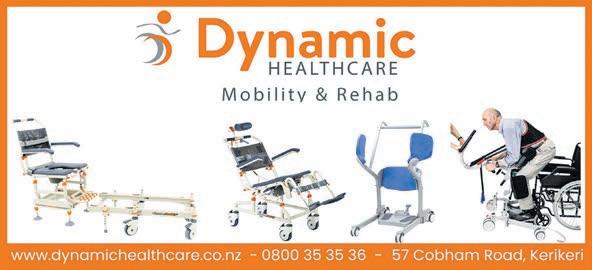
3. Convenient Showroom Experience
Visit our showroom in Kerikeri, where you’ll find ample disability parking and an extensive selection of products on display. Our friendly staff are always ready to help you explore your options and find the perfect fit for your requirements.
4. Personalized Service
At Dynamic Healthcare, we don’t just sell products; we provide solutions. We take the time to understand your needs and offer personalized recommendations to enhance your quality of life.
5. Family-Owned, CommunityFocused
As a family-owned business, we take pride in building strong relationships with our customers and contributing positively to the local community. Our commitment to service and excellence reflects the values that have guided us for over four decades.
Dynamic Healthcare – Where Experience Meets Care.
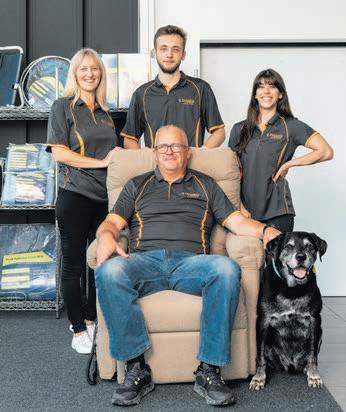
Visit Us Today
Discover how Dynamic Healthcare can help you achieve greater mobility and independence. Drop by our Kerikeri showroom to explore our range of products and experience our exceptional service firsthand.
Dynamic Healthcare
For more information, visit our website www.dynamichealthcare.co.nz or call us on 0800 353536.
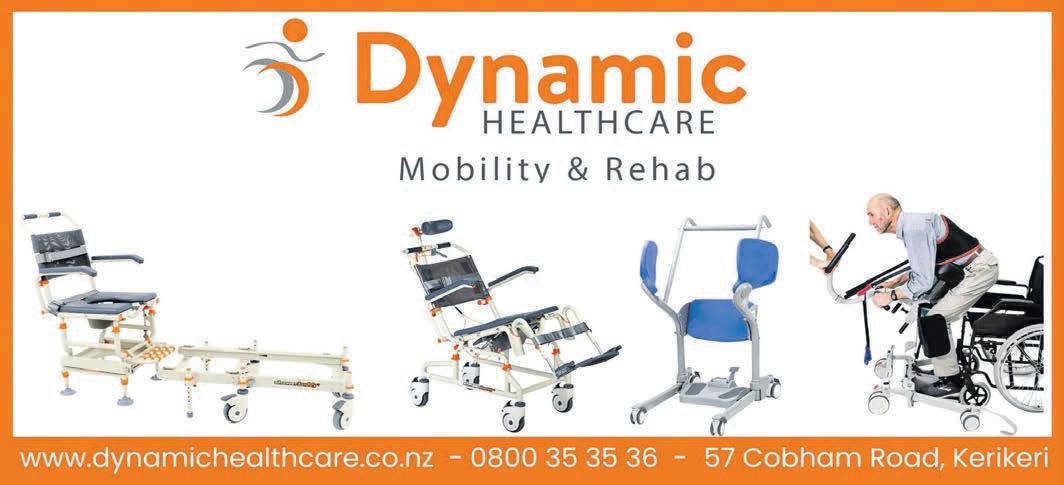


At The Falls Estate, retirement is not about slowing down - it’s about embracing life fully.
Experience the epitome of community living at The Falls Estate Lifestyle Village, where every day is a celebration of vibrant connections and boundless activities. Discover our range of apartments and villas, tailored to your unique needs.
Why wait? Start your new journey with us today, where the entry age is just 65!
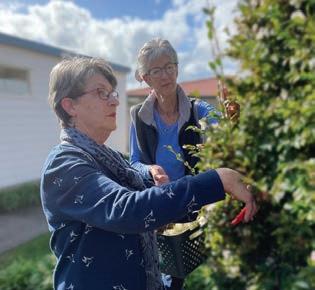
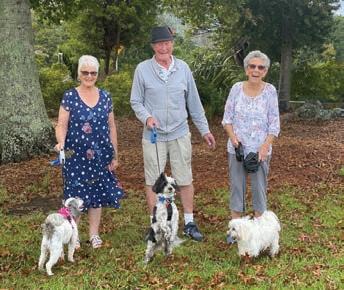

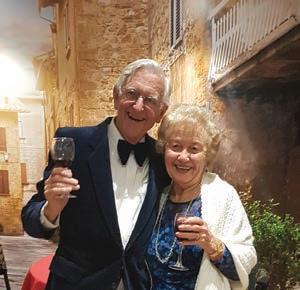
94 Boundary Road Tikipunga, Whangarei 09 437 5844 www.fallsestate.co.nz
Morris & Morris has been the premier funeral service provider in Northland for many decades. The new purpose-built funeral home, opened in 1988, ensured that families of Whangarei and the wider Northland region had a firstclass facility to honour and remember their loved ones.
Over the years families have become more dispersed and often only meet as a full extended family on occasions such as funerals. We know that gathering together to share stories and remember our loved ones at a funeral is important in the healing process following their death. Families that spend time with a loved one and have a meaningful farewell to acknowledge their passing tend to have less well-being issues further down the track.
A very special and important part of a meaningful farewell is what has become commonly known as the ‘cup of tea’ after the service. Here family and friends can share stories and reminisce about the life of their loved one while sharing food and drink in a time-honoured tradition.
As time passed and gatherings became bigger, the team at Morris & Morris realised that a larger and better refreshments lounge was needed to keep pace with demand. After a few years of debate and planning, the new plans were agreed on in 2022.
As part of the refurbishment it was decided to incorporate the chapel into the new lounge allowing for bigger funerals to be accommodated.

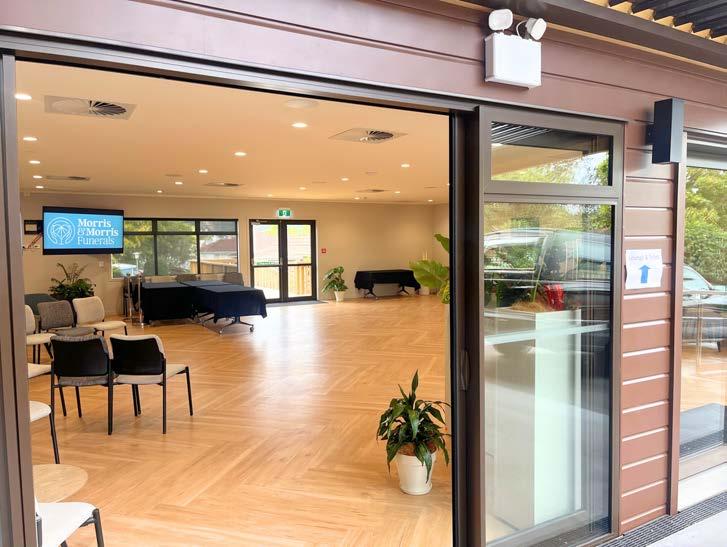
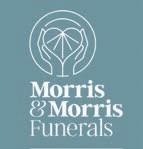
We can now seat 400 attendees by using all the new space or by using our soundproof partitioning we can close off different sections of the area to create more intimate chapel and lounge spaces.
We are very proud of our purpose-built facility, the only one in Whangarei, and the new lounge has made it the most desirable location in Whangarei for a funeral service.
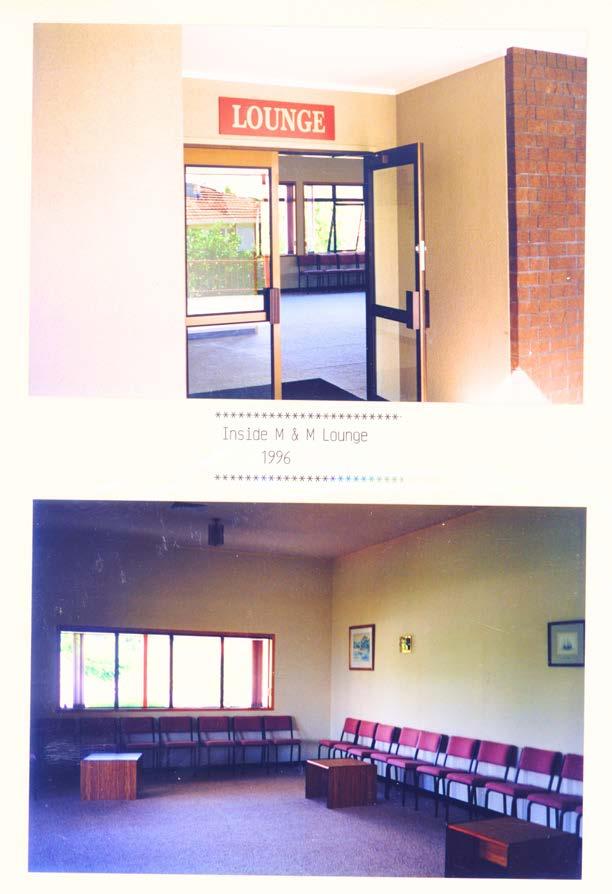
Phone:
Email: office@morrisandmorris.co.nz
Web: www.morrisandmorris.co.nz
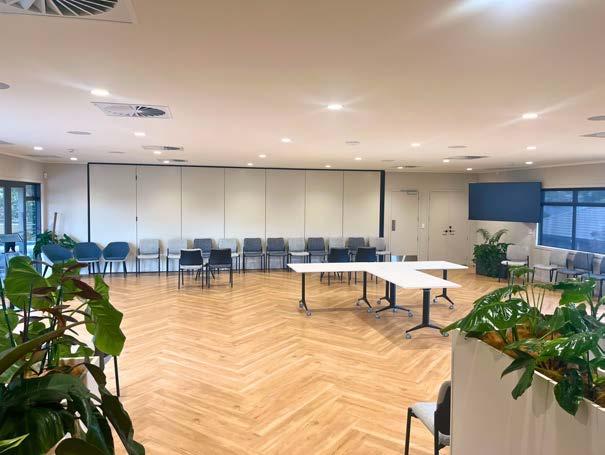
Story By Susan Merriman
Starting a new volunteer role may not seem to take a lot of courage, but what if it’s the first time you are putting yourself out into the world after a life-changing accident? What if you’re not stepping into a known and comfortable space, but rather rolling your wheelchair into a room of able-bodied strangers?
Ray Eyre has been volunteering his entire adult life. Just about every role is one that has combined excitement and challenge, starting with St John’s as a teenager, eventually moving on to skippering the Whangārei RSA fishing boat.
In a volunteer role that makes most of us shiver with fear, Ray was a Coast Guard volunteer working on the dedicated rescue vessel. His voice is pure calm as he describes his proudest moments of being ‘tea-bagged underneath the local rescue helicopter’ during a training exercise and ‘going out well beyond the harbour to rescue a broken down fishing boat that was breaching on a savage night.’
Born in Papakura and spending his formative years in Rotorua, Ray moved to Whangārei at 38 years old after visiting on holiday. He has been here ever since, growing his family to include his wife, five kids, twenty grandkids and one great grandchild.


Ray had an accident after a day’s fishing which damaged his spine and put him into a wheelchair.
Refusing to stare at the four walls, Ray built up the courage to get back out in the world and do something while asking himself: ‘I used to volunteer; why can’t I do it now?’
Recognising that ‘I have a disability now and have to work around it,’ Ray contacted Volunteering Northland to learn about appropriate opportunities. After an initial not great fit, Ray persevered and answered the advert from Habitat for Humanity for an Electrical Goods Tester.
Change Change your your life and the life and the lives of others lives of others
then spits, polishes, and prices them to go into the shop. If not up to scratch, he cuts the leads and throws them in the bin.
In addition to the satisfaction of reducing waste and advancing the cause of Habitat, Ray’s favorite part of the job is the other people.
The wide variety of volunteers and paid staff acts ‘like one big family, with lots of laughs,’ an atmosphere conducive to confiding in each other, and the camaraderie that com. Make it worthwhile and you’ll likely find a new life for yourself.’
If you would like to know more about volunteering in your community, you can visit the Volunteering Northland website www.volunteeringnorthland.nz or email them at info@volunteeringnorthland.nz
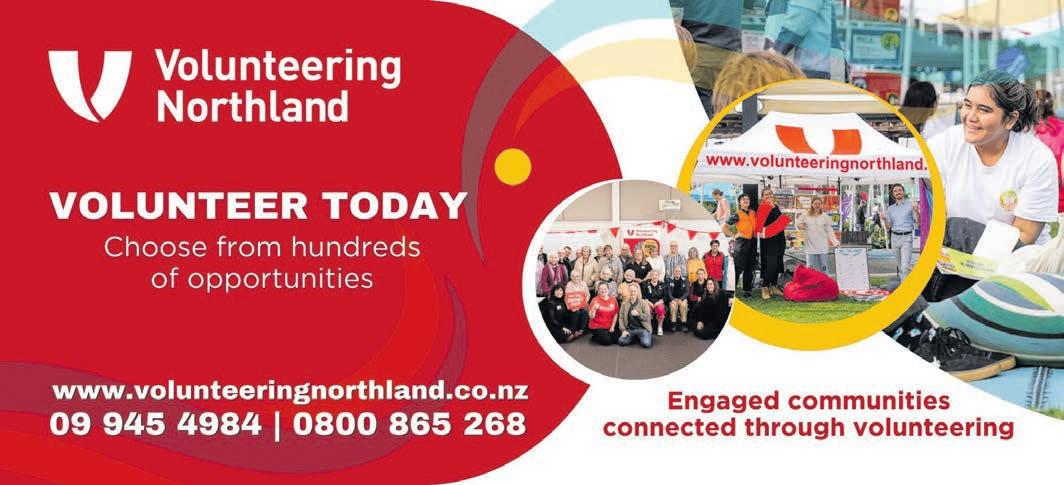
Kind Hands was initially established 2018 by Sharlene Clements who had 24 years nursing experience and her husband David, a skilled builder. Together they have provided a lifeline for medically fragile and disabled children and their whanau in Northland.
But in response to requests from parents, Sharlene decided to establish a very special early learning centre staffed by both registered early learning teachers and nurses. Now they are a registered early learning provider for up to 22 children at a time. The ECE service runs alongside the respite care which is open every fortnight from 5pm until Monday morning 08.30am.
“The children who come to us might be oxygen-dependent, have a tracheostomy, heart, lung or neuro-muscular disease, feeding tubes to name a few. We include children having medical treatments: chemotherapy who could be quite sick and for that child to be able to have social interaction in a medically controlled environment it’s really important. We also cater for children with developmental disabilities such as Downs Syndrome, global development delays and children on the autism spectrum also attend,

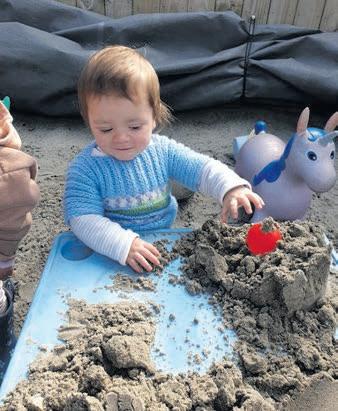
it is sometimes a juggle to ensure a good mix to get the best outcomes for each child. We have both teachers and nurses working together so when a child is dropped off in the morning, who may have a heart condition or a feeding tube, parents know they don’t have to explain about how to use the equipment – they know we know what to do,” she says.
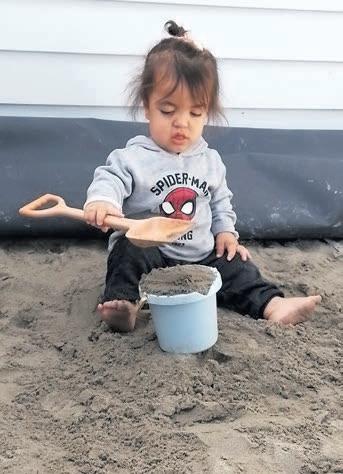
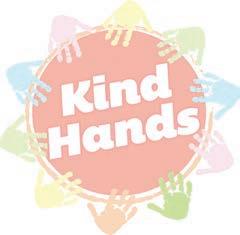
A typical day at Kind Hands may include feeding a child who has a feeding tube, therapies twice a day which include physiotherapy, occupational therapy, speech language therapy tailored to each child’s need and a range of activities focusing on each child’s individual needs set in place by their therapists for our staff to carry out while in our care. Low ratios are the key. We have to stay small, so no child is overlooked – some of our kids are quite sick. We are starting to see some awesome successes with the kids.
“I think we were just scratching the surface in Whāngarei. There isn’t a lot of resources for that 0–6-year-old age group with special needs here. The children are very non-judgmental at this age and just don’t notice the difference about each other. They help each other in different ways and accept each other.”
The exciting news is that myself and my husband renovated a second building which opened in March 2023 to accommodate a further 12 children into our ECE service, which means that we can now double our capacity! This is exciting for our families to have a service that believes in their children knowing that ‘they can be the best they can be’.
“It’s been a hard but rewarding journey setting up something that hasn’t been done before. I would love to help others interested in setting up a similar facility, as I know there is a huge need for it!”
Respite Care Cottage
Address 19 Morningside Road, Morningside, Whāngarei, 0110
Email info@kindhands.co.nz
Phone 09 459 7383
Mobile 021 234 1294
Website kindhands.co.nz
Life is difficult for many young people.
The Miriam Centre works with young people struggling with every life issue. We support and work with them to find solutions which are positive, less stressful and constructive for each young person & which will ensure their safety & that they can thrive.
Sometimes there are personal or family or school or peer issues which are distressing and absolutely too hard for them & are overwhelming.
Frequently we support young people with issues of anger, abuse, violence, intimidation and neglect and disempowerment.
Many living with drug mis use, particularly meth, crime, violence & many in poverty in their adult families.
Have been “rescued” removed to “safety” but left bereft, worried & about their siblings, Mum or whoever…..
“Help” can sometimes be unhelpful if we do not listen & work to empower our young people who frequently have no power & experienced by their adults & the system as difficult & the problem when in our experience the source of the young person’s despair is in the adult society & power of those who probably well meaningly impose their view of “best interests” in a structured mainstream way.


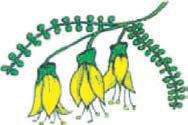

It is beholden on us as adults to look at the whole problem, the underlying as well as the immediate obviously reality & reasons & heal all of these….then & only then can we ensure long term positive change for all of us.
Our worry is that unless we do that our young people believe that their situation is insurmountable & risk destroying themselves.
It is up to us as adults to prove to all our rangatahi Maori & Non Maori there is always a way through.
Our multidisciplinary team of men and women, Maori and Non Maori specialist therapists wrap around the young person,
their family or whanau, school or Kura & our hapori , anyone & who ever are seeking our assistance. In order to ensure we work together our mahi must be in collaboration not a competition & empower everyone to identify, face & address the whole problem & to actually make a long term difference. The Miriam Centre our team , Kaimahi are from the North & therefore across the whole of our rohe which is Te Taitokerau Northland.

















“No Problem, You’re Welcome” is a training workshop which focuses on how to provide excellent health services to patients with disabilities when they enter your practice.
This training is offered virtually.
Did you know that 29 percent of people in Te Tai Tokerau have a disability?
As a Health Professional this percentage among your clientele will be a lot higher. Are you and your staff, equipped with the right skills to ensure a positive experience for everyone?
This 2 hour workshop is highly relevant for all medical professionals and their support staff including doctors, nurses, specialists, medical receptionists, front-line DHB staff, rest home providers with high needs clients and respite care providers. We tailor-make the training to suit the roles of attendees.
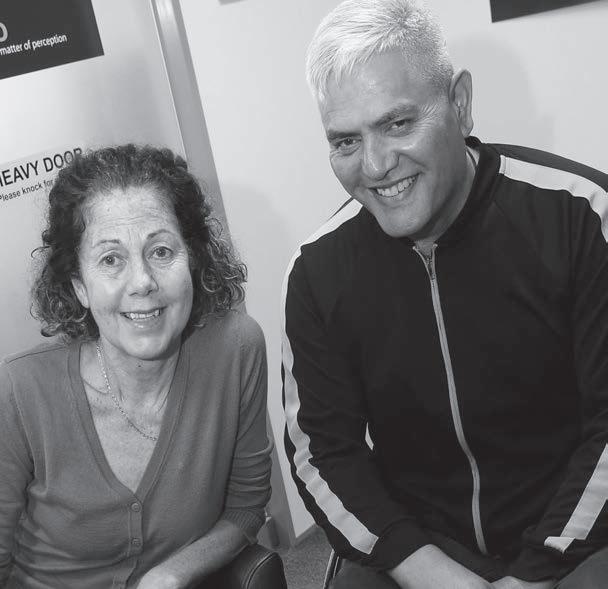
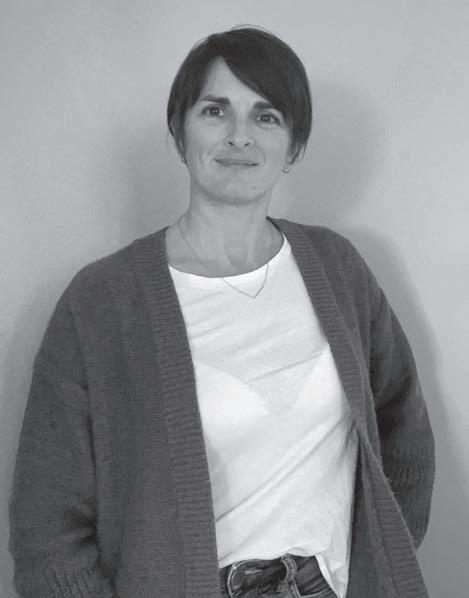
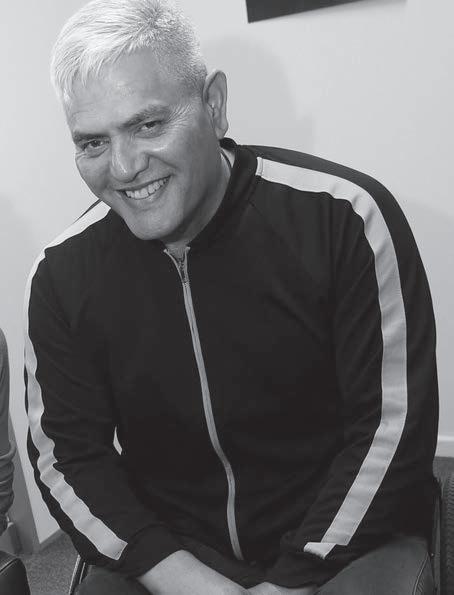
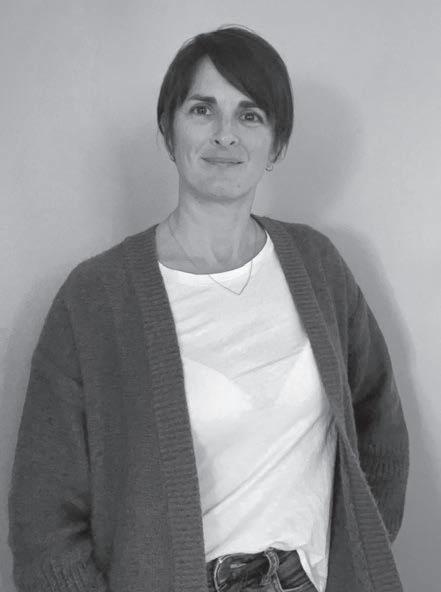
If you want to ensure your team is providing excellent health service to 100% of the people who come through your door, contact Tiaho Trust for information and pricing options. Email Arlene Carter : arlene@tiaho.org.nz
Our aim in producing this workshop is to provide understanding for medical professionals and health service providers, how to engage with disabled patients including older people as they become less mobile or develop physical impairments as they age.
This is a short and cost-effective means of providing professional development for staff that can have a significant positive impact on the patients experience.
Our facilitators have lived experience with a disability. They offer real insights in how to be better health providers, drawing on firsthand experiences to answer questions.
By the end of the course, you will view disability from a different perspective and be confident in providing an excellent health service to disabled people in the same way as for all your patients.
•Learn about how the Social Model and Medical Models of Disability can work together.
•Listen to interviews of people with disabilities on their experiences when engaging with Medical Professionals.
The below comment is from General Manager of Whakawhiti Ora pai, Errol Murray:
“The staff of Whakawhiti Ora pai, which is a Primary Health and Social Service Provider situated on the Aupouri Peninsula undertook the “No Problem, You’re Welcome” Disability, Awareness Training provided by Tiaho Trust. Staff have shared they found the facilitators , knowledgeable and dedicated, with a lot of personal experiences and examples . Staff feel as a result of doing this workshop they have a greater understanding and knowledge and feel better equipped to engage, act and speak with our whanau who have a disability”.
“Jonny and his team at Tiaho Trust have been providing Disability Awareness Training to our 2nd year nursing students at NorthTec for the past 12 years now. The session provided to us has been tailored to suit the learning needs of the students and meet our objectives. Facilitators are knowledgeable, entertaining and connect with the class ensuring a sense of whanaungatanga and a safe learning space. Feedback from the students is always positive and they particularly appreciate learning from people who are ‘living the experience’ and feel the information and strategies provided will enhance their ability to work with people who have disabilities.”
Linda Christian RN, MN, Senior Nursing Lecturer, NorthTec

AUGUST 2024
1st -31st Blind and Low Vision PAWGUST Walk or run to raise funds for NZ Guide Dogs
28th - 30th Parkinson’s Conference
30th Cancer Society Daffodil Day
SEPTEMBER 2024
1st - 30th World Alzheimer’s Month
1st - 30th Muscular Dystrophy Awareness
1st - 30th Charcot Marie Tooth (CMT) Awareness Month (part of MDA)
7th
Duchenne Muscular Dystrophy Awareness Day
9th – 15th Multiple Sclerosis Awareness Week and Street Appeal www.msnz.org.nz
15th International Myotonic Dystrophy Day
Date to be confirmed Alzheimer’s Memory Walk – Dargaville, Kerikeri and Whangarei -Round the loop www.alzheimers.org.nz
21st World Alzheimer’s Day www.alzheimers.org.nz
20th – 26th International Week of the Deaf www.deaf.org.nz
21st - 28th Arthritis Awareness Week www.arthritis.org.nz
23rd United Nations International Day of Sign Languages
30th Limb Girdle Muscular Dystrophy Awareness Day
OCTOBER 2024
1st - 31st Cerebral Palsy Awareness Month
1st International Day of Older Person www.ageconcern.org.nz
2nd Tiaho Trust/Age Concern Kaitaia Seniors Expo Stroke Awareness Week www.stroke.org.nz
10th World Mental Health Day www.mentalhealth.org.nz
12th World Arthritis Day
10th World Sight Day
29th World Stroke Day
NOVEMBER 2024
Date to be announced Walk 2 D’Feet MND
Date to be announced Scoot the Loop for MS
23rd Northland MS Society AGM
30th International Day of People with Disabilities - Tiaho Trust celebration (to be confirmed)
DECEMBER 2024
10th World Human Rights Day www.amnesty.org.nz
JANUARY 2025
4th World Braille Day
FEBRUARY 2025
1st – 28th Heart Awareness Month
10th Annual International Epilepsy Day www.epilepsy.org
Date to be announced Ruakaka Surf Day
28th Rare Disease Day
MARCH 2025
1st – 31st Neurological Brain Awareness Month
1st – 31st Brain Injury Awareness Month
1st – 31st Hearing Awareness Month
21st World Down Syndrome Awareness Day www.nzdsa.org.nz
End of March
Blind Foundation Guide Dog Red Puppy Appeal
26th Epilepsy Awareness “Purple Day” www.purpleday.org
APRIL 2025
2nd World Autism Awareness Day www.autismnz.org.nz
7th or 14th Parkinson’s Society Awareness and Appeal Week www.parkinsons.org.nz
11th World Parkinson’s Day www.parkinsons.org.nz
MAY 2025
9th – 15th NZ Sign Language Week
1st -31st Huntington’s Awareness Month
10th May World Lupus Day
30th World Multiple Sclerosis Awareness Day www.worldmsday.org
JUNE 2025
1st - 30th Heart Kids Month
1st -30th MND Awareness Month
1st -30th Aphasia Awareness Month
20th FSH Dystrophy Day
21st Global ALS/MND Awareness day www.mnda.org.nz
Parkinson’s Northland SUPPORT GROUPS
Kerikeri- monthly
Kaitaia – monthly
Whangarei – 1st Friday monthly
Dargaville – 1st Thursday
Waipu – 3rd Friday monthly
And monthly Carer Support Groups in Whangarei.
Weekly Exercise Groups: Walking, Singing/voice training, Hydrotherapy, Movement for PD Whangarei.
Fortnightly Ping-Pong Whangarei.
Counterpunch (Whangarei and Kerikeri)
Weekly Swim Exercise Group (Kerikeri)
Alzheimer’s Northland Support Groups
Whangarei – 1st Wednesday of the month (1.30- 3.00)
And 2nd Thursday of the month (10am-11.30)
Onerahi – 1st Tuesday of the month (10am-11.30)
Kerikeri – 3rd Wednesday of the month (10am-11.30
Kaitaia – 2nd Wednesday of the month (10am-12)
Mangawhai - 2nd Wednesday of the month (11am-12.30)
Dargaville – 2nd Wednesday of the month (10am-11.30)
Bream Bay – 1st Wednesday of the month (10am-11.30)
Paihia – 2nd Thursday (10am -11.30)
(other areas and groups please contact Alzheimers direct)
Arthritis 20+ Northland Support Groups
Whangarei – 1st Saturday of the month
Hydrotherapy at the Aquatic Centre Wednesdays
Contact Els – 022 6466 405
“GETTING
Brain Injury Association Northland SUPPORT GROUPS
Kerikeri – 1st Thursday monthly
Dargaville – 2nd Thursday monthly
K aitaia – 3rd Thursday monthly
Whangarei – The last Thursday monthly
Stroke Foundation Northland Support Groups
Whangarei – Every Tuesday Hydrotherapy Classes
Every 3rd Wednesday Stroke Club
Young Stroke Survivors Group
Dargaville – 1st Monday of the month Stroke Survivors
K aitaia – Every Friday Art Therapy
Every Thursday Chat Group
Multiple Sclerosis Northland Support Group
Whangarei – First Thursday of the month
Mid North/Kerikeri – Bi-Monthly
